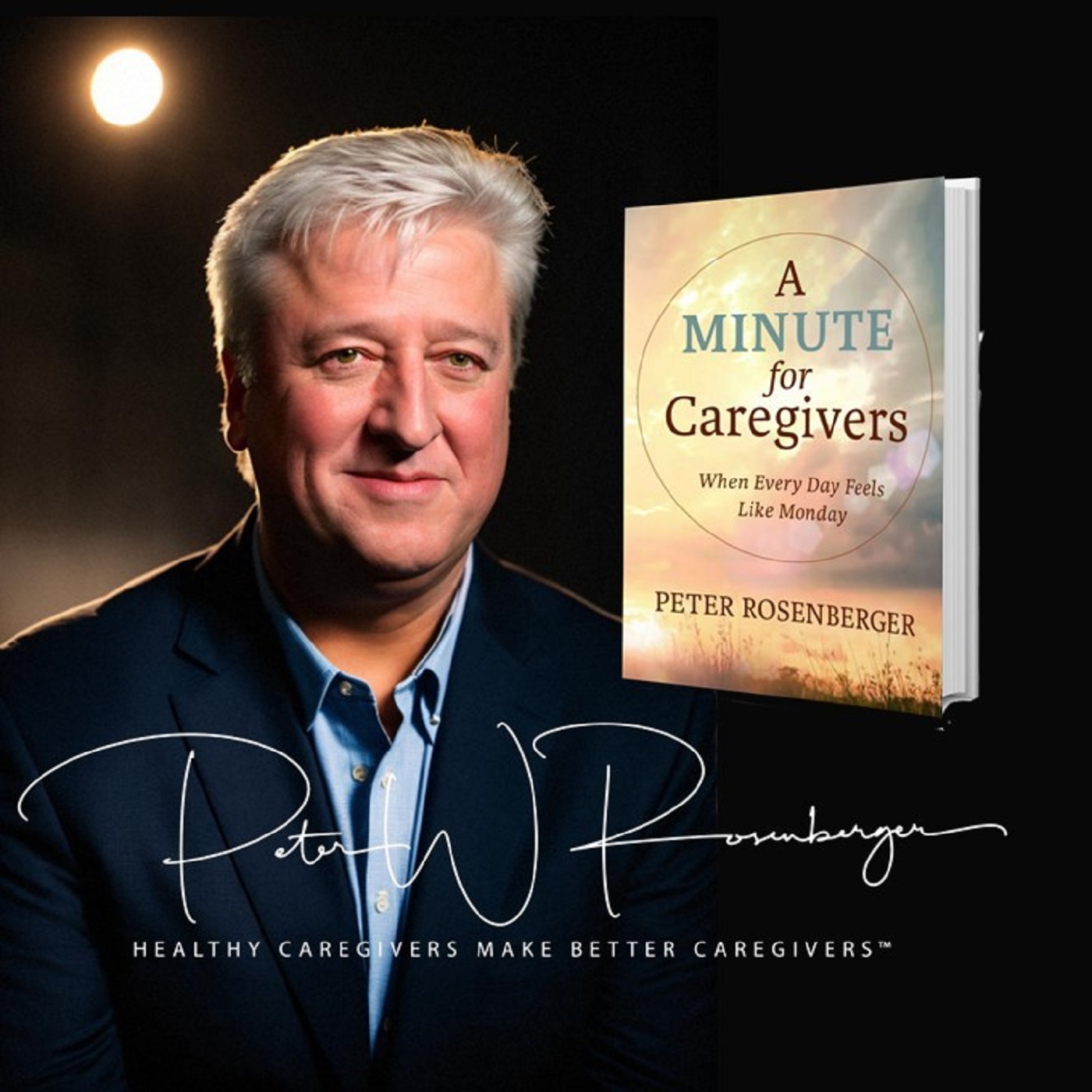824 episodes


A close pastor friend of mine called me after burying his beloved dog. While digging the hole, he wept while angrily reflecting on how much he hated death. The conversation turned to the countless funerals he presided over during his ministry—I played the piano for many of those services. We talked a bit longer about some of the cherished families we ministered to during those funerals and discussed our shared anger at death. Then he said something that’s never left me. “Do you know who hates death more?” “God hates death,” he stated quietly. Pausing, he added, “He hates it so much that He took it upon Himself to provide a way to defeat death.” When Jesus stood at His friend Lazarus’s grave, John 11:38 shares that He was “deeply moved.” Some translations state that anger welled up in Jesus—anger at death. Mere weeks after standing at Lazarus’s tomb, on what we celebrate as Easter Sunday, Jesus indeed conquered death, but at an immeasurable cost to Himself. —C. S. Lewis,


* * * * * * * * From the challenges of finding one's footing in music to navigating the fog of fear and obligation, we explore the caregiver's journey - and what happens when we lose our way. How do we get back on track? Listen for a compelling discussion shedding light on the struggles and triumphs of caring for a loved one. * * * www.hopeforthecaregiver.com * * * * * * * * * *
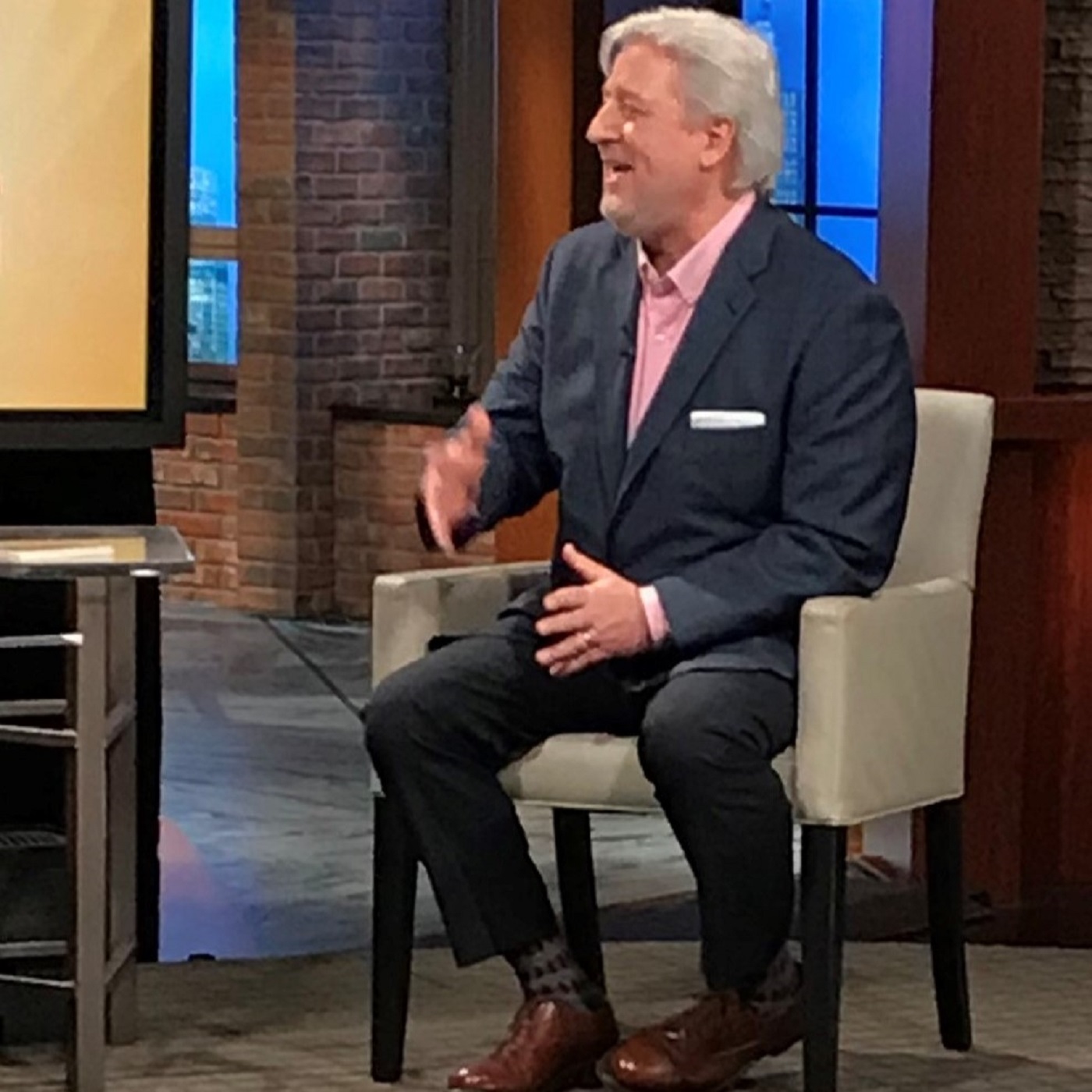

Winston Churchill stated, "We are masters of unsaid words and slaves to those we let slip out." As caregivers, we live in a pressure cooker - and often spout off things we wish we could reclaim. Sometimes, we have to bite our tongues and learn to like the taste of blood. In this opening monologue from the program, I discuss this issue that affects everyone - it is the human condition - but we, as caregivers, can be exceptionally prone to this. TRANSCRIPT (there may be typos) Welcome to Hope for the Caregiver here on American Family Radio. This is Peter Rosenberger. This is the program for you as a family caregiver. Healthy caregivers make better caregivers and this program is designed to help the family caregiver stay strong and healthy while taking care of someone who is not. If that describes you, well guess what? You're in the right place. Hope for the Caregiver.com For me, that's a big deal for me. I mean, you know, it's not Joe Rogan or anything, but for me, I was really quite stunned because years ago when I started doing this program, people looked at me and said, how in the world are you going to talk about caregivers for an hour? How are you going to do this for an hour? I was literally asked that by friends of mine. I mean, people who were very successful in what they do, and they said, this is not going to work. And then, I told you, the radio station that I've originally talked to, they said, we don't see this as being a viable program. Well, here we are. And by the way, that was in 2011. Here we are 13 years later, 800-something episodes, almost 250,000 downloads, and we're just getting warmed up because this issue is not going to go away. If You Love Somebody, You Will Most Likely Be a Caregiver. If You Live Long Enough, You Will Need One. It is the human condition. I was watching on social media the other day, somebody posted a thing, said, what is something you really need as a caregiver? You know, it was really kind of emotional and I appreciate that. That's good. And I was like, I just need somebody to tell me where my grocery list is. Where are my keys? Where's my wallet? You know, I appreciate people getting very sensitive about it you know and we all get emotional we all get frustrated all that kind of stuff but I mean I don't need to sit down and watch the Hallmark Channel and kind of cry it out you know I'm just not there maybe you are I'm not I'm approaching the end of four decades of this you know and as I as 39 years ago in May I went through my first surgery with Gracie So I've been doing this for a long time and there's a point where this is your life and you don't really spend a lot of time trying to emote about it. It is what it is. Let's move on. What can we do? What can we accomplish? And how can I get better through this? How can I become better? What can I become through this? Not how do I get out of it? What can I become through this? How Can I Go Deeper? And that brings me to today's caregiver quote. Our caregiver quote comes from the very quotable Winston Churchill. You all know I'm a fan. Very few world leaders have the place in history that Winston Churchill does and had the impact We are masters of the unsaid words, but slaves of those we let slip out. We are masters of the unsaid words, but slaves of those we let slip out. While those words remain in our mind, we're still in control of them. But once they come out, they own us for good or bad. And it's something worthy of our consideration as caregivers. We live with enormous amounts of stress. And on any given day, at any given time, we could be rather brittle. Surely I'm not the only one. I mean, raise a hand. How many of you all get brittle at times? So it's easy to pop off and say things we really wish we hadn't have said. Now let's go deeper because as great as Churchill is, there's one greater. Matthew 12, 36, he said, I tell you, on the day of judgment, people will give account for every careless word they speak. That's the words of Jesus. And all throughout the scriptures, you'll see Proverbs 10, 19, when words are many, transgression is not lacking, but whoever restrains his lips is prudent. When words are many, I think one translation says instead of transgression is not lacking, it says when words are many, sin abounds. But you get the point. Proverbs 13.3 Whoever guards his mouth preserves his life. He who opens wide his lips comes to ruin. James 1.26 If anyone thinks he is religious and does not bridle his tongue but deceives his heart, this person's religion is worthless. These are strong words, and these are not the only ones in Scripture that talk about letting your mouth run off, popping off and saying things that you wish you hadn't. One stark and very tragic story is in the book of Judges, chapter 11, and there's this guy named Jephthah, who's a mighty warrior. And if you look at Judges 11, verse 30, And Jephthah made a vow to the Lord, If you give the Ammonites into my hand, he's chasing down the Ammonites, whatever comes out of the door of my house to meet me when I return and triumph from the Ammonites will be the Lord's, and I will sacrifice it as a burnt offering. And he laid waste to the Ammonites. I mean, he really did an amazing job, and he's pretty excited about it. He comes home. Who should come out to meet him but his daughter? and when he saw her verse 35 he tore his clothes and cried oh no my daughter you have brought me down and I am devastated I have made a vow to the Lord that I cannot break and evidently he did not Offer Her as a Burnt Offering, but he sacrificed to the Lord that she would never marry. This was his only child, and she never married. And it was a devastating moment. He had spoken rashly. Scripture warns us of this, of speaking rashly. I got to tell you, my fellow caregivers, we are under an enormous amount of strain daily. There's too many things competing for shelf space in our brain and our mouth just serves as a pressure valve to let some of that out and we say things that we really, really should not say. I am chief among those who do that and I have to make amends on a regular basis, Gracie will tell you, and I cringe over all of it. I'd like to tell you I'm getting better. Maybe a little bit. I'm getting older. Maybe a little wiser. I don't know. But the one thing I do know now is where the path is. I am not a slave to ignorance on this. I have scripture. I have quotes from world leaders like Churchill. I have a plethora, which means a lot, you know. Sorry, that's an old joke. I have so many resources now that I can lean on instead of my own understanding to guide me, to help me remind myself to put my hand over my mouth and not say things that I'll be a slave to. Not Say Things That I'm Going to Regret. I've never had to make amends for something I didn't say, but I've sure had to make amends for things I did say. And so I love this quote from Churchill. I thought it was a good way to start the program out. We are masters of the unsaid words, but slaves of those we let slip out. As a caregiver, I am learning to put my hand over my mouth a little bit more. I've got a long ways to go. But I know the path and that is hope for the caregiver. This is Peter Rosenberger. We'll be right back. Welcome back to Hope for the Caregiver. This is Peter Rosenberger. This is the program for you as a family caregiver. Hopeforthecaregiver.com.
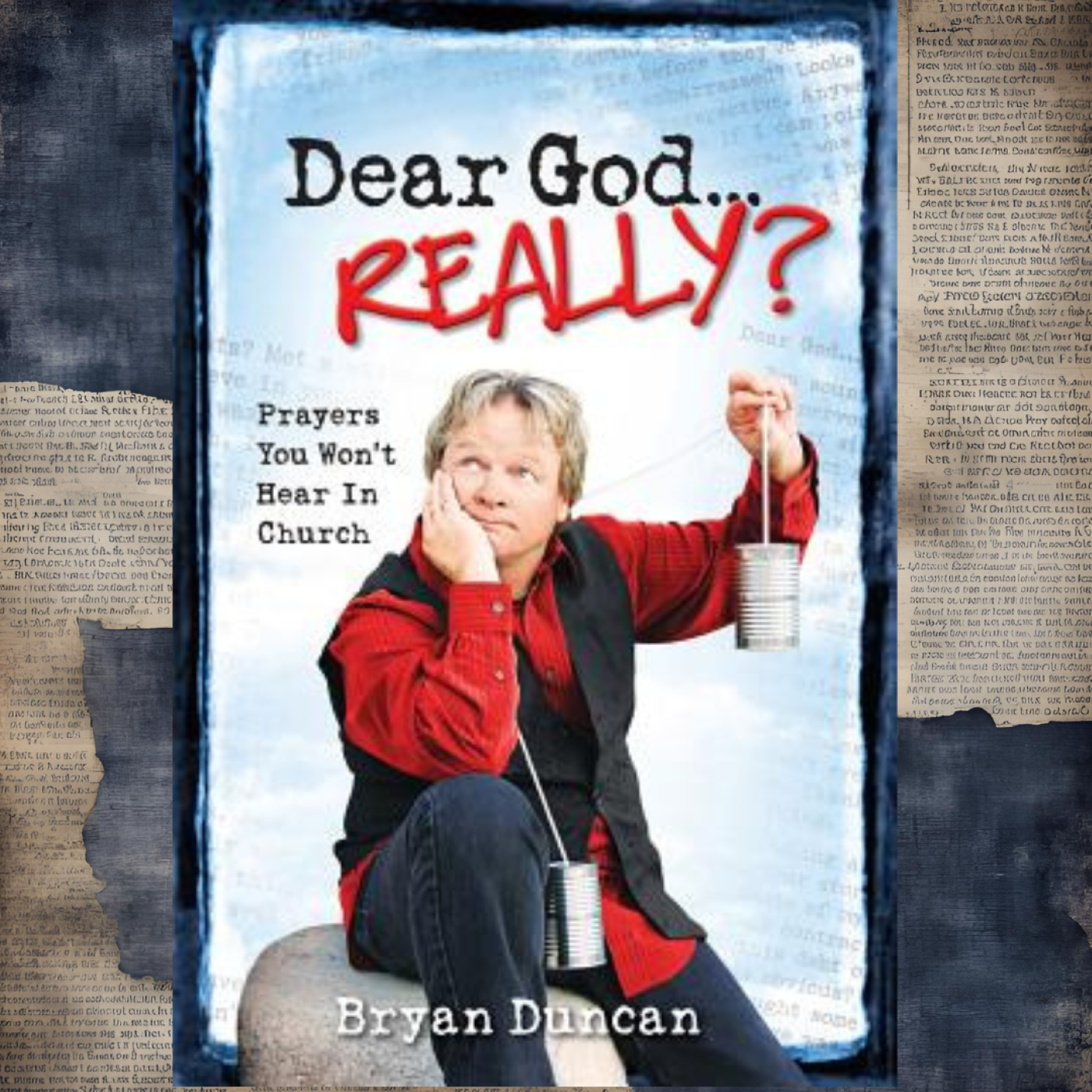

Host of the popular podcast Nutshell Sermons, recording artist Bryan Duncan (Grammy and Dove award winner) shares his journey as a caregiver for his wife - and his book, "Dear God ...Really? Prayers You Won't Hear in Church.
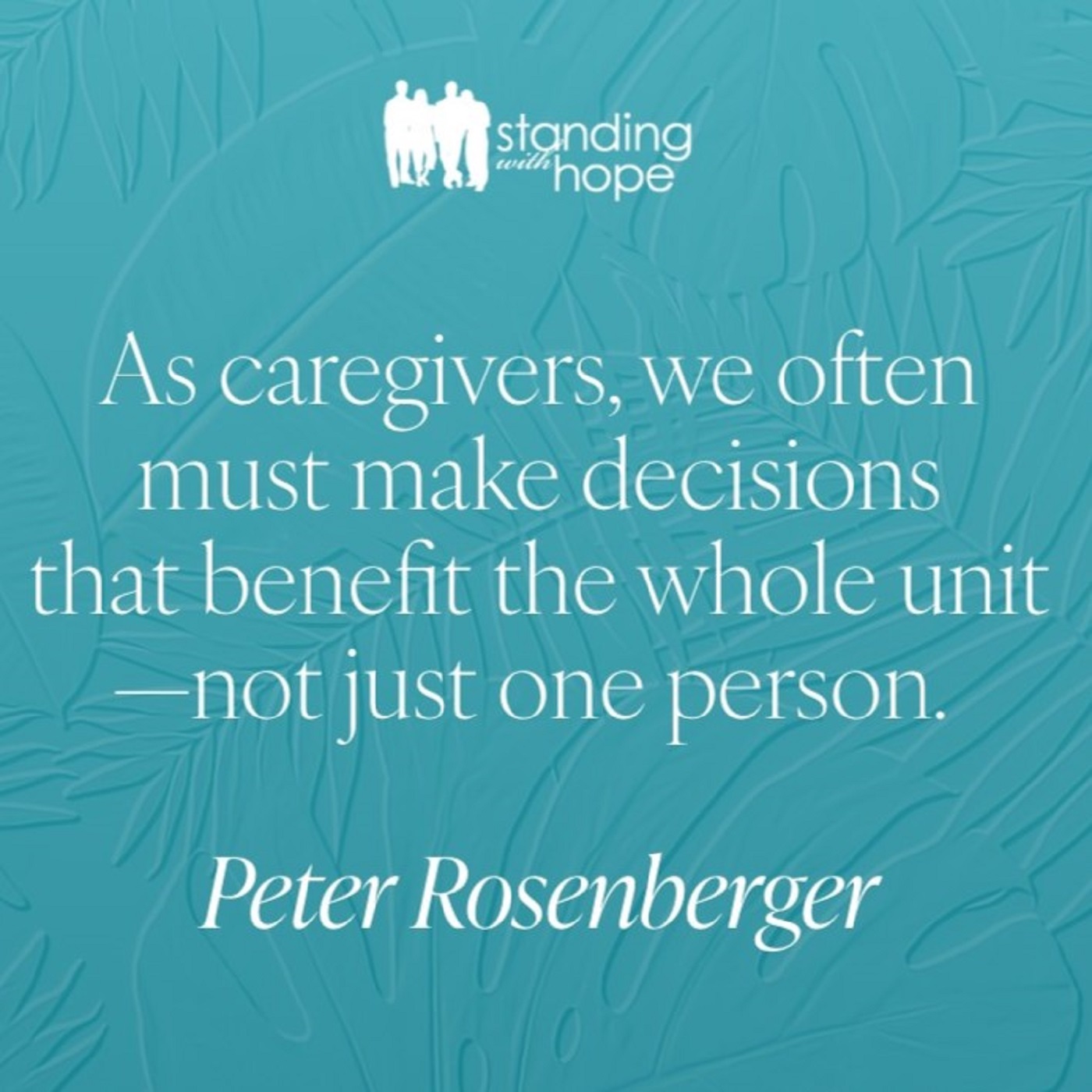

* * * * As caregivers, we often must make decisions that benefit the whole unit - not Just one person. * * * * * We get into the trap as caregivers where we're thinking of someone almost to the exclusion of everyone else,. I understand why - because that person has extreme needs. * But as a caregiver, YOU are meeting many of those extreme needs. What happens if you don't consider the person meeting the extreme needs? * You must think of the whole unit. * * * * SHOW TRANSCRIPT: (May Contain Typos) * * * * * * If you feel that you are operating out of guilt or fear or any of those things, what kind of decisions are you going to make? * * * * See, that's the whole point of this program. * * * * I'm not here to give caregiving tips. * * * * We'll have them. * * * * I mean, you can't help but have them. * * * * We're going to talk about it. * * * * We'll swerve into all kinds of things, whether it's, you know, handicap-accessible features or taking up the throw rugs or how to deal with an insurance company, how to deal with doctors. * * * * * Yeah, we'll cover all that. * * * * * I got that. * * * * * Okay. * * * * * But how many of us make good decisions when we are gripped with fear, guilt, or obligation? * * * * * And how long do you think you can make decisions if you feel obligated to do this, you feel trapped to do this, you feel like this is what you're supposed to do? * * * * * How long before that turns into full-blown resentment? * * * * * How many of you are already there? * * * * * That you're struggling with this right now and you just feel resentful. * * * * * And I took a temperature of our Facebook group the other day. In one word, describe how you feel. * * * * * And you see the dynamics of what people are dealing with. * * * * * They're afraid, they're worn out, they're mad, they're exhausted, depressed. * * * * * It's all over the map. * * * * * How Many Good Decisions Are Made With Those Kinds Of Feelings? * * * * * And then we have to have an anchor point that helps us make good decisions, regardless of what we're feeling or, sometimes, what we're seeing with our very eyes. * * * * * What I mean by that is many of us have to look at suffering and we cannot allow that suffering to dictate good decision making. * * * * * We have to think clearly. * * * * * We have to detach from that somewhat. * * * * * They're depending on us to do it. * * * * * I mean, think about when you're in a situation when you're hurting; how many good decisions do you make when you've sprained your ankle or broken your leg or fallen and got yourself cut or whatever? * * * * * You're kind of almost in panic mode sometimes when you get to that level of trauma. * * * * * How many good decisions are you making? * * * * * Well, that's the same point that our loved ones have to deal with, and they count on us to do it. * * * * * But if we are so paralyzed is a good word, but it's not just paralyzed. * * * * * If we're so encumbered by all these other things, whether it be fear, obligation to guilt, resentment, terror, or any of those things, what are you going to do? * * * * * Somebody has got to step back away from that and have a clear head. * * * * * And if you don't do it as a caregiver for your loved one, who is in line behind you to do it? * * * * * So that's our reality. * * * * * Somebody has got to keep a cool head. * * * * * Now that's hard to do. * * * * * And I would suggest to you that you can't do it on your own. * * * * * You're going to need help to do this. * * * * * And that's why this program is anchored in what Scripture says. * * * * * What does God say? * * * * * Now, I promise you, I've looked. * * * * * There is no place in Scripture where I have found any type of clear instructions on how to deal as a husband caring for his wife * * * * * For Somebody with 86 Surgeries, Both Legs Amputated, and Going on for 40 Years. * * * * * I've looked. * * * * * It ain't in there. * * * * * Okay? * * * * * Not there. * * * * * But there are a lot of scriptures that talk about fear, feeling weary, guilt, anxiety, sorrow, depression, loneliness, * * * * * All of those things are covered. * * * * * And if God has this in his scriptures, in his word to us, people always say, well, I didn't know what God's will for my life is. * * * * * He's already said it. * * * * * And within the confines of his decreed word that we have, we are free to use the mind that he gave us. * * * * * You know, some people overthink this. * * * * * Well, what kind of job does God want me to have? * * * * * What Kind of Job Do You Want? * * * * * Does it line up with the values and the directives that he has in Scripture? * * * * * Do you think God is going to want you to be a drug dealer? * * * * * No? * * * * * Okay, cross that off the list. * * * * * I understand that's an absurd example, but sometimes you make your point with absurdity. * * * * * We Don't Have to Overthink This. * * * * * And I'll never forget a dear pastor friend of ours when Gracie and I were looking at a decision to have a pain pump put in her that was attached to her dura, and it worked for a while. * * * * * Then it just went horribly wrong, but that's a longer story. * * * * * But at the time, we were trying to figure out whether we should make this decision. * * * * * And our pastor looked at her and said, there's no sin involved in this decision. * * * * * You've done your due diligence. * * * * * You've sat down and talked about this with the professionals, your doctor and so forth. * * * * * There's no sin involved in this. * * * * * This is not a moral equation here. * * * * * We're within the confines of Scripture. * * * * * We're not violating any of God's precepts. * * * * * And I would suggest the same applies across the board for all of us as caregivers when we're making decisions as long as we understand the parameters of what God says. * * * * * And we use that to guide us in our decision-making. * * * * * Being good stewards of money, being kind and considerate, thoughtful, committing it to prayer, * * * * * All of these things are involved as you make this decision that you may have to make unilaterally for the betterment of the unit. * * * * * Understand this, you may be making that decision, but if you are standing on the principles of God's Word, you're not making that decision in a vacuum. * * * * * You're not leaning on your own understanding. * * * * * You will acknowledge Him in all your ways and He will direct your paths. * * * * * Now the question is for us as caregivers, * * * * * Do We Believe That or Not? * * * * * Is that something that is going to be anchored in our soul or not? * * * * * And I ask you, my fellow caregivers, would you be willing to do that with your decision-making? * * * * * When we do that, that is hope for the caregiver, that conviction that we can live a calmer, healthier, and, dare I say it, a more joyful life, even while serving as a caregiver and making hard decisions. * * * * * Okay, we'll talk about that some more, but sometimes we have to make decisions unilaterally on what's best for the unit.


Comedian and long-time Sinatra pal Tommy Dreesen tells a wonderful story about Frank Sinatra and a pair of cufflinks. This story has a powerful lesson for all of us, but particularly for those of us serving as caregivers. This and more from our broadcast on March 9, 2024 “None of this belongs to us, and as soon as we die, someone else is going to get it. It's going to transfer. Somebody will be wearing our stuff, driving our car, living in our home, and living on our land.” -
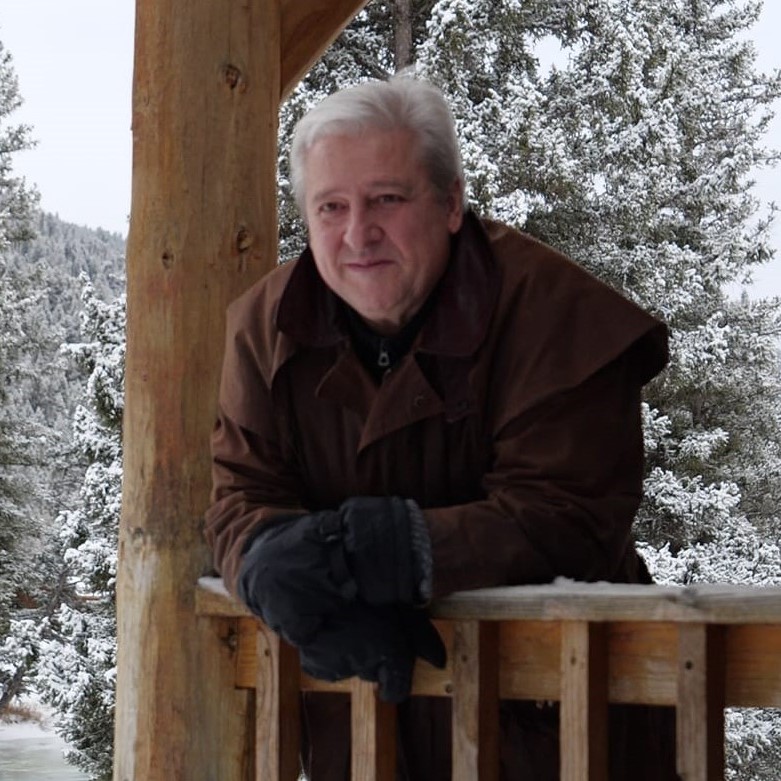

When I launched a caregiver outreach, I established a goal to help provide caregivers with a vocabulary that helped identify their feelings and needs. Without understanding, help remains elusive. In this bonus segment from our broadcast, I provide two unusual examples of how caregivers feel on any given day. I do this to not only give fellow caregivers that understanding, but those who seek to help them, as well.
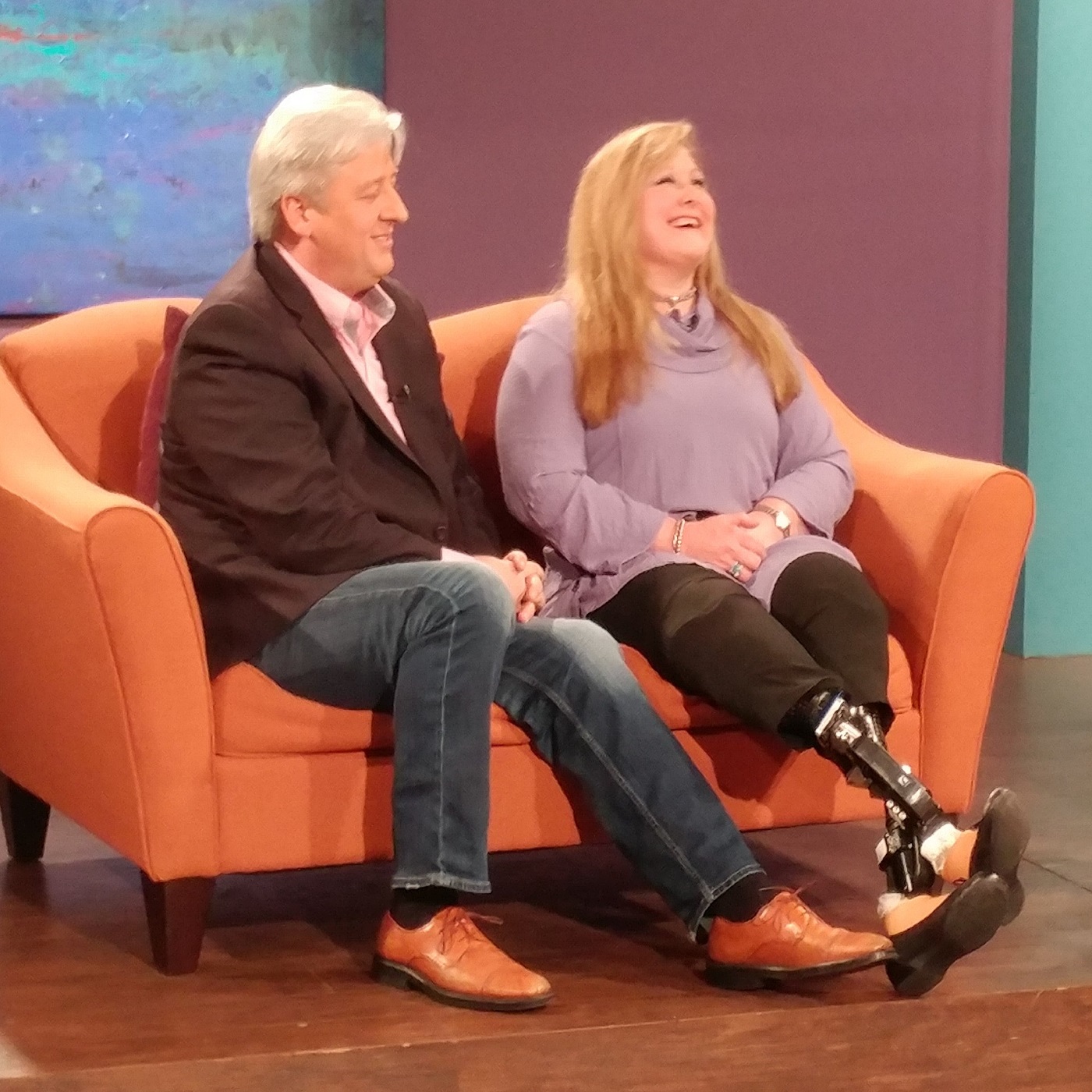

Covering a lot of ground in this episode as I delve into how we choose to view our circumstances as caregivers in light of what Scripture teaches. www.hopeforthecaregiver.com
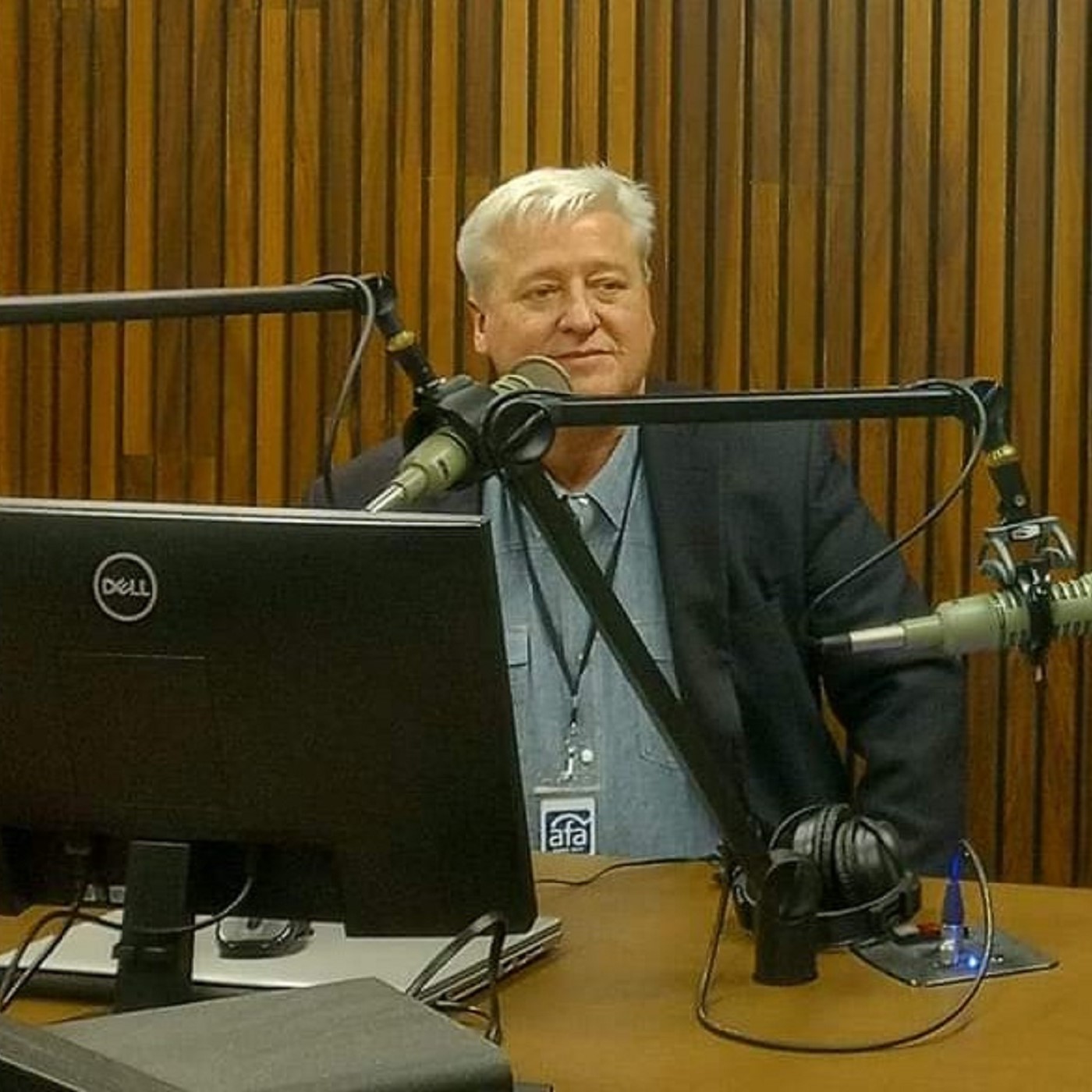

For several years, Pat Montague has produced my broadcast, I recently talked with her about her own journey as a caregiver.


TRANSCRIPT: This is the program for you as a family caregiver. Healthy caregivers make better caregivers. Hopeforthecaregiver.com. You know about that last block, I ought to have a thing where you guys, y'all send us some lyrics for the song. Maybe we'll figure out which one's the best one, and I'll get Gracie to sing it when she starts getting better. What do you think? Because she said, Gracie was very worried. She said, look, I've got to get my voice into shape. I said, well, you've got time, darling. You're just now three months out of surgery, so give yourself a little bit of grace here. And yet, it would be kind of fun to have her sing this song. This is the theme for Peter's show. All right, enough of that frivolity and jocularity. I've been having a conversation ongoing with several different caregivers in the midst of their caregiving and I've challenged them and I'm going to challenge you because I've challenged myself. I do not subscribe to this belief that we as caregivers wait until the circumstances of our loved ones change before we start changing. You all know that. If you've listened to this show for any amount of time, you're going to know that the point is that we change no matter what's going on around us. That we can improve. We can get healthier. And I recognize that we are constrained by Our Journey As Caregivers. I get that. I really get that. Now, let me give you some context. I've been a caregiver since I was 22. I asked Gracie to marry me when I was 22 years old. Bless her heart for her lack of judgment. But here we are, 38 years later. During that entire time, I have been her caregiver. Now, some days have not been quite as dire as others. And then some days have been extremely dire. I mean, when you have the kind of journey we've had. So at some point, and I can't remember exactly when, but I had to make a pivotal decision that this is not going to change. So therefore I must. I kept thinking if we could just get around that corner, if we could just get over that hill, then... I can be settled and content and learn to be productive. This is what's holding me back. And so we've got to get through this. And I would strive towards this. I'm not by any means proud of these things. I mean, I'm horrifically embarrassed by it. But I'm sharing these things with you because I believe that so many of you have those same kind of feelings. If we could just get through this, if he would just stop doing this, if she would just stop doing this, if we could just get mama onto Jesus, if we could just, if, if, if, if, if, then I could be productive, then I could be at peace, then I could be successful, all of those things. Now, if I'm the only one that has had this internal conversation So be it. But I don't think I am. All right? So if you've had this internal conversation, then I'm talking to you. Okay? This is for you. This is just you and me now. Two people who have had these types of thoughts that have weighed heavy on us and it's changed our behavior. It's forced us into a pattern of striving and and unsettledness unrest angst that is at times overpowering okay so just so we're on the same page just you and me all right here's what happened with me once I made that decision that this is my life this is the way it is it's not going to change anytime soon I cannot affect what has happened to Gracie. I didn't cause it. I can't change it. All I can do is care for her in this. And the best way to care for her is to make sure that I am productive, healthy, spiritually, emotionally, physically, financially, professionally, all of the above. You've heard me say it now hundreds of times. Healthy caregivers Make better caregivers. I am no good to Gracie if I am fat, broken, miserable. I am no good to Gracie if I stroke out. I cannot guarantee that things won't happen to me, but I live my life in a way to protect that so that I don't take unnecessary risk. The other day I went out on a snowmobile after feeding the horses. I feed the horses on, I have a little sled that I pull behind the snowmobile and I feed the horses, pull the hay out there and it's great. Quite enjoyable, I must say. And then I decided to take a ride around just to check out all the new snow and everything else here on the place. I texted our son and I said, look, if you don't hear from me in an hour, call the guy down the road. His name is Kevin. He'll come out and he'll come find me. But I told him where I was going. Well, now, a lot of people don't think that way, but I have to. Gracie can't Take care of yourself right now. And she needs to know where I am. Somebody needs to know where I am in case something happens. Things can happen out here in Montana on the frozen tundra. There's no lifeguard on duty. So I don't take stupid chances. This Mental Shift Changed My Journey As Caregiver But the purpose of this conversation right now is not to say that I am constrained because I don't feel like I am. I am tethered. I am tethered to this situation with Gracie and I have been since I was 22. That's not going to change until one of us steps into glory. Okay? Those are the facts. We're just going to deal with facts. I am tethered to this, but I'm not hostage to it. I'm not prisoner to it. And I think this is the mindset that I would like for my fellow caregivers to understand is that we can accept that we're tethered, that this is part of it, but we're not hostage. And within the arc of that tether, whatever that looks like for you and me, we can be productive. So if you think about it is I have a tether to my ankle that's tethered to Gracie's wheelchair. I will stretch that thing out as far as I can to be as productive within that circle around her. And sometimes I have to move her so that I can have a bigger circle. And I've done that and that's okay. But I'm not hostage. I don't spend my time trying to figure out how to cut the tether. What I spend my time doing is how do I be productive given these particular realities in my life? That was a huge mental shift for me. Some people don't want to make that shift, and I get it. Some people don't want to do that. That's fine. But I believe that there are many of you who are seeking something like that, who recognize that you're in a situation that is unchangeable, And again, I've said this, I don't know how many times, I would love to tell you that I'm wise. I would love to tell you that I'm spiritually mature, but we all know better. I'm just tired. It is exhausting to strive like this. And when you get tired enough, you will be open to look at this from a different perspective. Well, maybe this might be a better way to look at this. You know, whatever that looks like. And for me, that's exactly what happened. And I realized that my invitation was to be productive where I was. I love Jeremiah 29. Everybody talks about Jeremiah 29 11. This Mental Shift Changed My Journey As Caregiver In Jeremiah 29, if you go back and read it, God is saying through Jeremiah, hey, look, I put you here. The Israelites were in captivity in Babylon, and he said, you're not here to sit there and lament about this. Build your house, plant your vineyards, get married, have kids, have grandkids. I know where you are. I know the plans I have for you, but you're going to stay right here until I'm ready to move you. Preachers don't want to talk about that particular aspect unless they're having overcrowding problems at the church, because that's when people start to leave. Nobody wants to hear that. They want to hear God's going to get me out and give me my victory, give me my breakthrough. He's already given you your breakthrough. That was at the cross. Now we're going to have some more understanding about this and that you can be productive right where you are, even as a caregiver. And I will give you proof. I've been a caregiver again since I was 22. I have written four books, published books. I have written hundreds of commentaries that have been published in Fox News, WebMD, USA Today, AARP, all kinds of stuff. I have the nation's largest podcast for caregivers. I think, from what I understand, the world's largest podcast. I have the world's largest broadcast here on this network for family caregivers. I have managed a medical nightmare that is well over now $15 million. with a hundred plus doctors, 13 different hospitals, seven different insurance companies. And it's ongoing. It's relentless. I cook, I clean, I do the laundry. I can, I iron, you know, y'all know I love to iron. I love to iron. I ironed a shirt this morning just to be able to come here to do this program. I have produced two full length CDs. I've written songs that not only have Gracie and I performed, but other people have recorded. I have performed on stages with Gracie all over the country, on national television, all the above. And I've done all of that while a caregiver. Now, is it because I'm so special? Well, I don't think so. It's because I choose to believe the principle we discussed in the last block when that guy said at the caregiver support group, he's got this, answer the question. Deal with the reality in front of us knowing that he's got this. and it frees me up. I don't have to strive over figuring out how this is going to all make sense. I don't have to figure out how to solve Gracie's amputation problem or chronic pain problem or surgery problem. I don't have to figure that out. I can be productive today. I don't have to wait to get over to the next hill. I can do something today that has value. Trusting that God's got this and it's okay. Do you realize the burden that takes off of all of us? And so I challenge you. Many of you feel constrained and I get that feeling. I truly get it. I truly get it. But what would happen if you just shifted that thought process just a little and thought, maybe I'm not constrained, maybe I'm just tethered, but inside this ark, God knows where I am and I could be productive and trust Him with all the other. I can be obedient right where I am. I can bloom where I'm planted. That is hope for the caregiver. This is Peter Rosenberger. We'll be right back.


Recently, at a caregiver support group I lead, a man who is caring for his wife suffering from Alzheimer's, shared how she repeatedly peppers him with the same question. "I sighed for a moment in my heart," he said. "And then I said to myself, 'He's got this; answer her question.'" Listening to him, I thought, "What a tremendous statement of faith; to look at somebody who is suffering from Alzheimer's who asks the same question over and over ... and over. He stopped himself from getting agitated and preached to himself. "He's Got This. Answer her question." That's a worthy goal for all of us to aspire to incorporate in our lives: recognizing that God has this, and we can meet others where they are - not where we wished they could be.
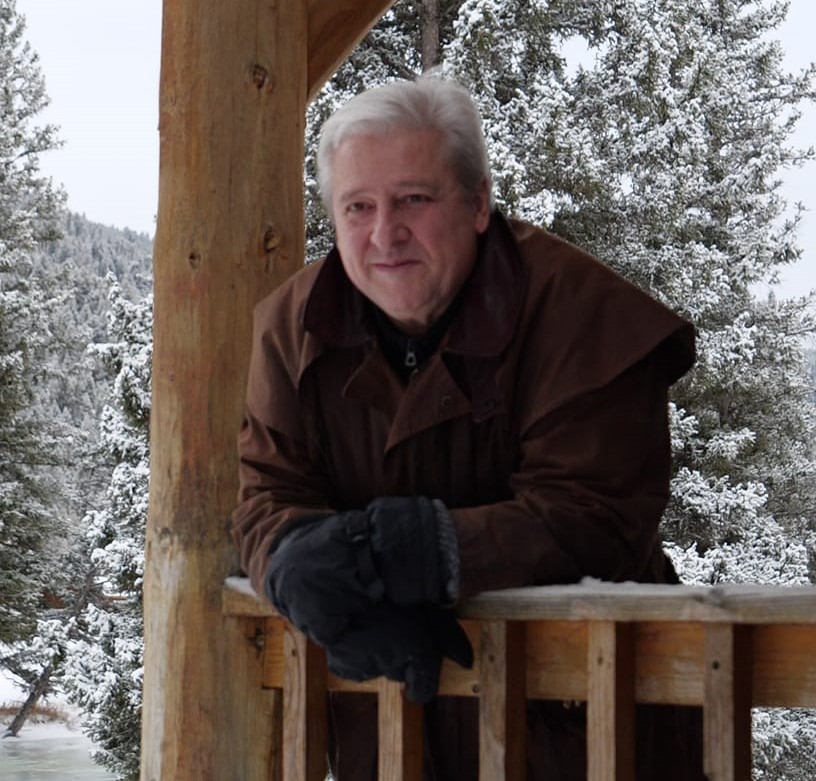

“Everything I do is to help talk my fellow caregivers off a ledge because people have done this for me. People get so disoriented in the journey of caregiving. * Caregivers often think, "Okay, if I could get them to stop acting like this, if I could just get through this next procedure; if we could just see if we could stop this particular thing from happening, then we can have the contentment and the peace and the satisfaction or the stability that we're craving." How's that working for you? How's that working for any of us? It's like we have this stick out in front of us, dangling this carrot of things going how we want them to be, but we can never get to it. And we're constantly striving for that because we see it. And if it would just be this way, we'd be okay. But see, that's the kind of thing promulgated in our society. That is the conventional wisdom of this world. "Get What You Want, Get What You Think You Need, and You Can Be Settled in Your Spirit, and You Can Be Happy, You Can Be Content." That is in direct opposition to what Scripture teaches.


“Everything I do is to help talk my fellow caregivers off a ledge because people have done this for me. People get so disoriented in the journey of caregiving. * Caregivers often think, "Okay, if I could get them to stop acting like this, if I could just get through this next procedure; if we could just see if we could stop this particular thing from happening, then we can have the contentment and the peace and the satisfaction or the stability that we're craving." How's that working for you? How's that working for any of us? It's like we have this stick out in front of us, dangling this carrot of things going how we want them to be, but we can never get to it. And we're constantly striving for that because we see it. And if it would just be this way, we'd be okay. But see, that's the kind of thing promulgated in our society. That is the conventional wisdom of this world. "Get What You Want, Get What You Think You Need, and You Can Be Settled in Your Spirit, and You Can Be Happy, You Can Be Content." That is in direct opposition to what Scripture teaches.
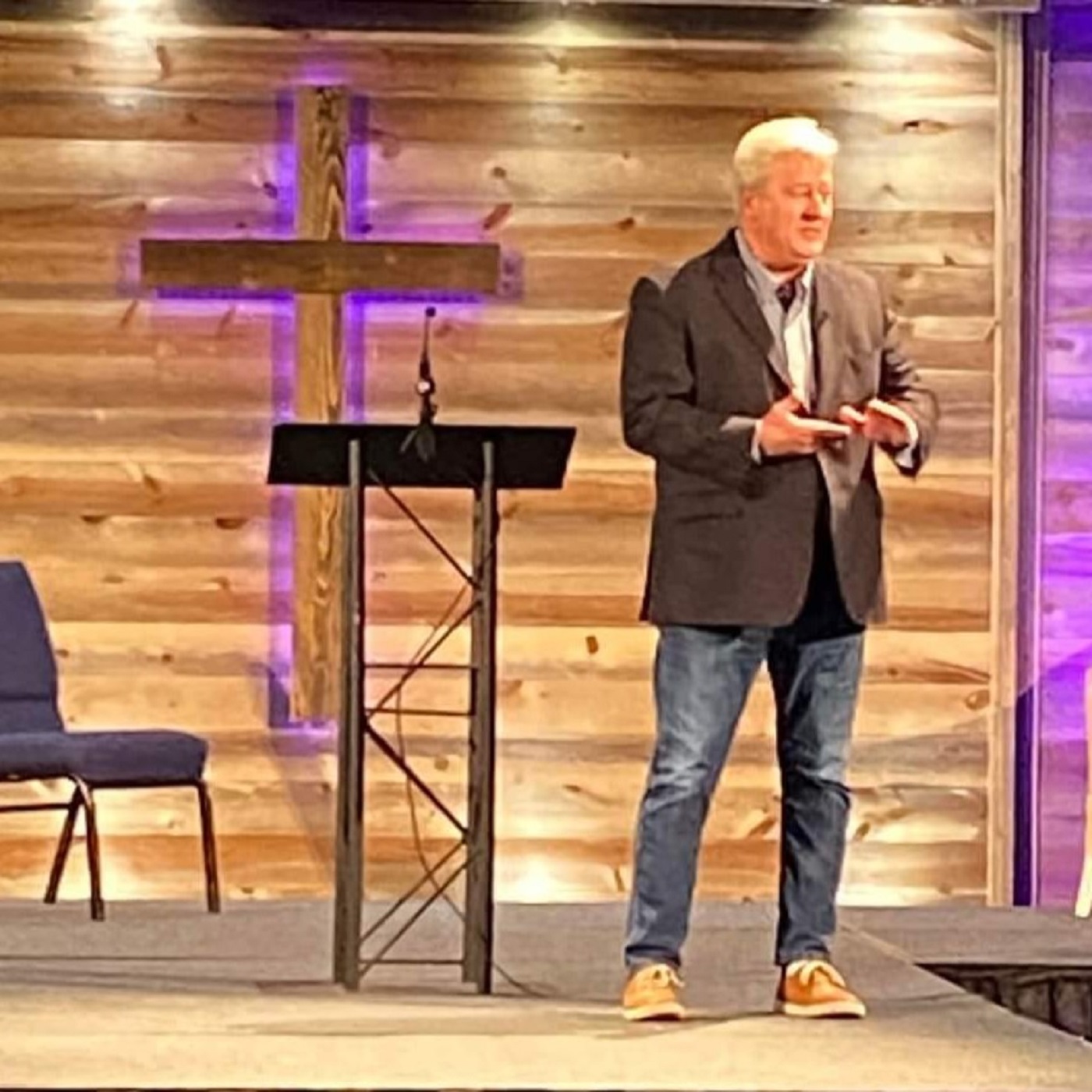

"Life hands us very difficult things. How we deal with those things and how we work through those things is what this program is all about. We do it in the arena of being a caregiver."
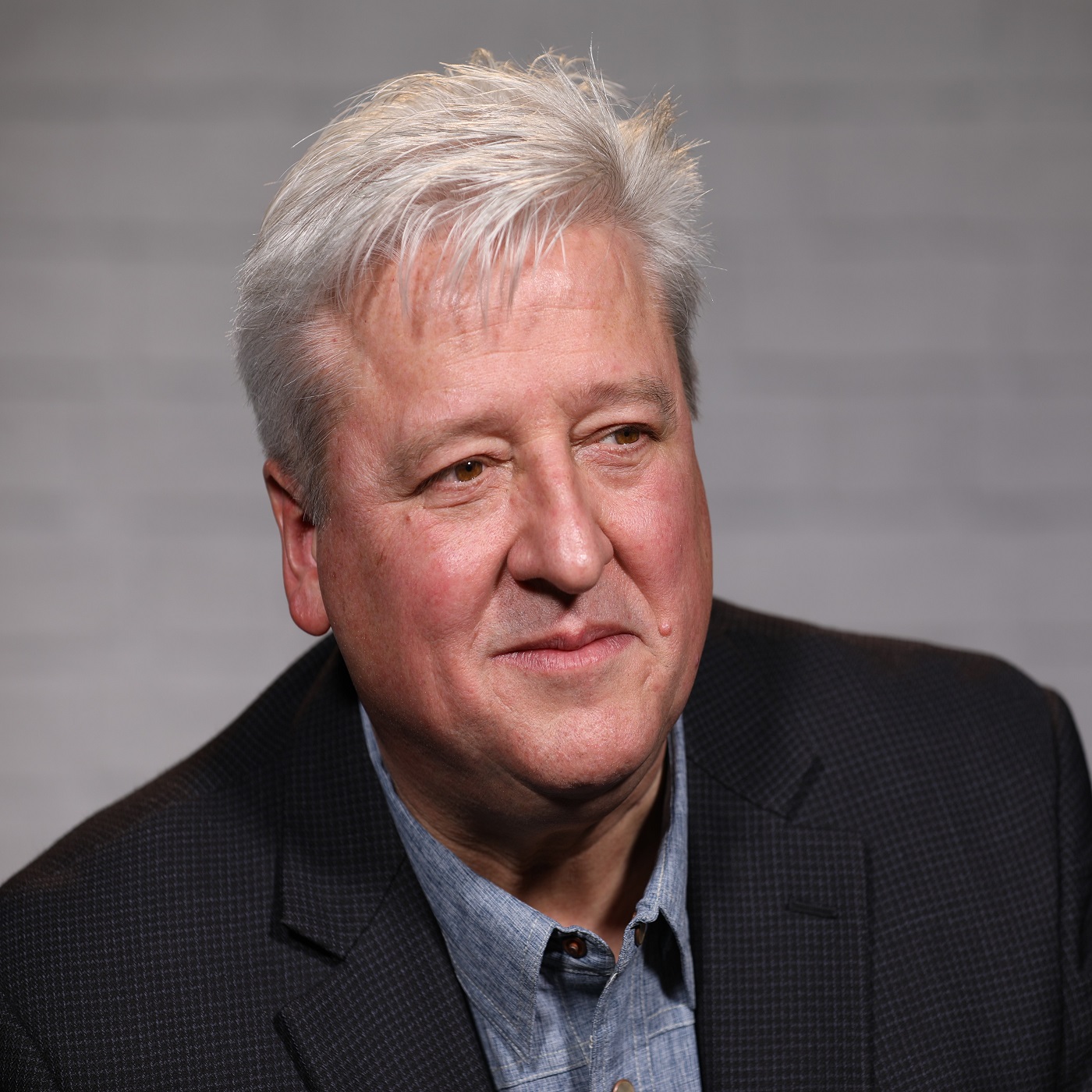

One of the greatest thefts to family caregivers comes from our own hearts. We often steal from the moment to regret the past—or fear the future. Although yesterday’s events may have arrived with tears and trauma, today remains an opportunity to calm our hearts and deal with current circumstances. As caregivers, we all know our tomorrows most likely show up with challenges—but unexpected joys may also arrive. Surprising beauty awaits us along the way, yet we are sure to miss it when our focus extends behind or in front of us. None of this eliminates the grief we carry. However, healthily living in the present allows us to mourn while simultaneously resisting the fear, rage, and despair that often erupt during caregiving. Although our independence, relationships, career paths, and even dreams inevitably suffer in our caregiving journey, peace of mind remains solidly in our hands. No one has the power to rob us of that composure—except ourselves. —William Shakespeare From: - * * *


* * * * * * * * Let Your Scars Speak, Not Your Wounds. * * * * * One of the things that we've developed in our culture is this mentality of putting everything out there that doesn't need to be put out there. * * * * * You know, you can blame it on Jerry Springer, but it actually goes back a lot further than that. * * * * * But we have this, I don't know, there's some kind of sick fascination with getting out there and blurting out stuff that really needs to be kept private. * * * * * and needs to be dealt with. * * * * * And we as caregivers live with raw wounds. * * * * * And the easy thing for us to do is just to blah and just get it all out there. * * * * * Well, that's that needs to happen, but it needs to happen in a very contained, controlled and private place. * * * * * OK, not, you know, out on social media. * * * * * We used to have what we call Testimony Chapel when I was in Bible College many, many years ago. * * * * * It became nicknamed Bragamony or Testifony. * * * * * You always want to have that one individual who comes up and tries to win the contest of the most horrific story. * * * * * Prayer Wars. * * * * * What Prayer Request Was Given. * * * * * There was always this one lady who would try to trumpet with some kind of just grotesque thing. * * * * * You know, somebody had a car accident and their leg was broken. * * * * * Well, she knew somebody, you know, fell off a skyscraper and the girder pierced them through the eye. * * * * * And, you know, it just went on and on. * * * * * And I'm not, y'all don't tell anybody what I'm saying. * * * * * I'm not making fun of her in the sense that certainly I want to pray for people to have it, but it was just like there was always that one-upmanship of just having these things that we'd like to parade out. * * * * * It's a sick way of getting attention. * * * * * There are people who have been saved from horrific things in their life, and I know them. * * * * * And all of us have sinned, and some of us have pretty sensational sins. * * * * * But it's not how lurid the tale, it's how great the Savior. * * * * * And so if we're not constantly affirming the redemptive work of Christ, but rather instead we're just dwelling on the sewer, then what are we doing? * * * * * So when I hear that phrase, let your scar speak, not your wounds, you don't want to give a festering, angry wound a microphone. * * * * * Okay. * * * * * It needs to be treated by professionals. * * * * * It needs to be worked on. * * * * * You know, Gracie's had a lot of wounds. * * * * * We've had a lot of wound care, wound care teams and so forth that just don't want to heal. * * * * * And some of you know with diabetes and so forth, things in that nature don't want to heal. * * * * * Gracie's had more trauma, she doesn't have diabetes, she has trauma, but it's hard to get things to heal sometimes. * * * * * And that's when medical professionals zero in on that. * * * * * They do all kinds of things to clean out the wound to make sure it's not infected or abscessed and all the things that are involved in cleaning a wound. * * * * * How would you feel at church if somebody came up in front of the church and they pulled up their shirt and showed a festering wound on their abdomen or whatever? * * * * * Well, it wouldn't be appropriate. * * * * * And yet that's what a lot of us do emotionally. * * * * * And we are in a culture that likes to show our festering wounds. * * * * * They don't need to be paraded, they need to be treated by trained people who can help irrigate, clean, and let this wound scar over. * * * * * Then once you have the scar, then you can let the scar speak because it's healed. * * * * * You've dealt with it. * * * * * You look back and say, you know, I remember when that was painful, but it's healed now and I'm so grateful. * * * * * And let me tell you the healing process. * * * * * And I had another friend that used to tell me years ago, * * * * * Process the pain privately. * * * * * Share the process publicly. * * * * * Don't process your pain out there in public. * * * * * It's not appropriate and it doesn't help anybody. * * * * * You've heard me say this, some of you long-time listeners, about stand-up comedians. * * * * * You can tell the ones who haven't worked through a lot of healing with some of the relationships they've had in their life and so they use their stage, they make money off of it, but it's, you know, it's * * * * * It's harsh. * * * * * It's abrasive. * * * * * It's unpleasant. * * * * * It's, you know, and that's not what we're about here. * * * * * People can know that you're wounded. * * * * * People can know that you are injured, but they don't get to see the graphic details. * * * * * I liken it this way. * * * * * Most everybody knows that it's related to us. * * * * * I guess everybody knows that Gracie is an amputee. * * * * * She's missing both of her legs below the knee. * * * * * We all know that. * * * * * Okay. * * * * * But not everybody gets to see those limbs. * * * * * You understand? * * * * * So let your scars speak, not your wounds. * * * * * It's discretion, it's wisdom, it's discernment. * * * * * It's the core of both of those statements. * * * * * Process your pain privately, share the process publicly. * * * * * People need to know how to deal with the pain, but they don't need to have it all paraded out there in front of them. * * * * * Now you all know that Gracie and I have a hard life. * * * * * We have a very difficult life. * * * * * It's not a bad life. * * * * * It's just a very difficult life. * * * * * Well, do you listen in to hear how hard my life is? * * * * * No. * * * * * You want to hear what am I learning through this and how am I growing and how am I enduring? * * * * * What sustains us? * * * * * That's what you want to hear. * * * * * You don't want to hear me just sit there and talk about how painful our life is. * * * * * I don't want to hear about your sins. * * * * * I want to hear about your Redeemer. * * * * * You follow me on that? * * * * * And I think this is a trap we get into as caregivers because so much of what we feel is right up in front of us and it hurts all the time. * * * * * And it's very easy and tempting for us to just vent it all out. * * * * * And we need to vent it out. * * * * * It needs to come out. * * * * * Every abscessed wound needs to be cleaned out. * * * * * Okay? * * * * * but not in front of a crowd needs to be done in a controlled environment by people who understand how to do it. * * * * * I don't want to go to church and have somebody come on the platform with an open festering infected abscess wound in front of everybody there. * * * * * That needs to be done in private with professionals. * * * * * But I do want to hear from somebody who has the scars of what it's like to go through that and have it healed and what they learned through it, how they grew through it, how they were sustained through it. * * * * * And more importantly, who was the professional that helped him do it? * * * * * And ultimately, the professional that heals all our wounds heals all our diseases. * * * * * It's Christ. * * * * * Nobody wants me to explain to them the graphic nature of Gracie's recent back surgery. * * * * * But there are a lot of people who want to know, who was the surgeon? * * * * * Who was the surgeon? * * * * * And that's when your scars speak because you've gotten through it. * * * * * Not your wounds speaking, your scars. * * * * * That's when you're learning to share the process. * * * * * And that's really important for us as caregivers. * * * * * Because we do have all this trauma. * * * * * We do have a lot of graphic things that we have to deal with. * * * * * But who was the surgeon? * * * * * Who was the professional? * * * * * Who was the doctor? * * * * * Who was the counselor? * * * * * Who was the pastor? * * * * * Who was the savior who got you through this? * * * * * That's what we need to share. * * * * * This is Peter Rosenberger. * * * * * We'll be right back.


In 2nd Samuel, there's a remarkable story about a man named Mephibosheth.


Caregivers often find ourselves in the unenviable spot of needing to confront or provide leadership to people with far more skills and training than we possess. One of the ways we can navigate those times is by learning to ask better questions. Another is to educate ourselves. As we face the new year, I talked about those things and more.
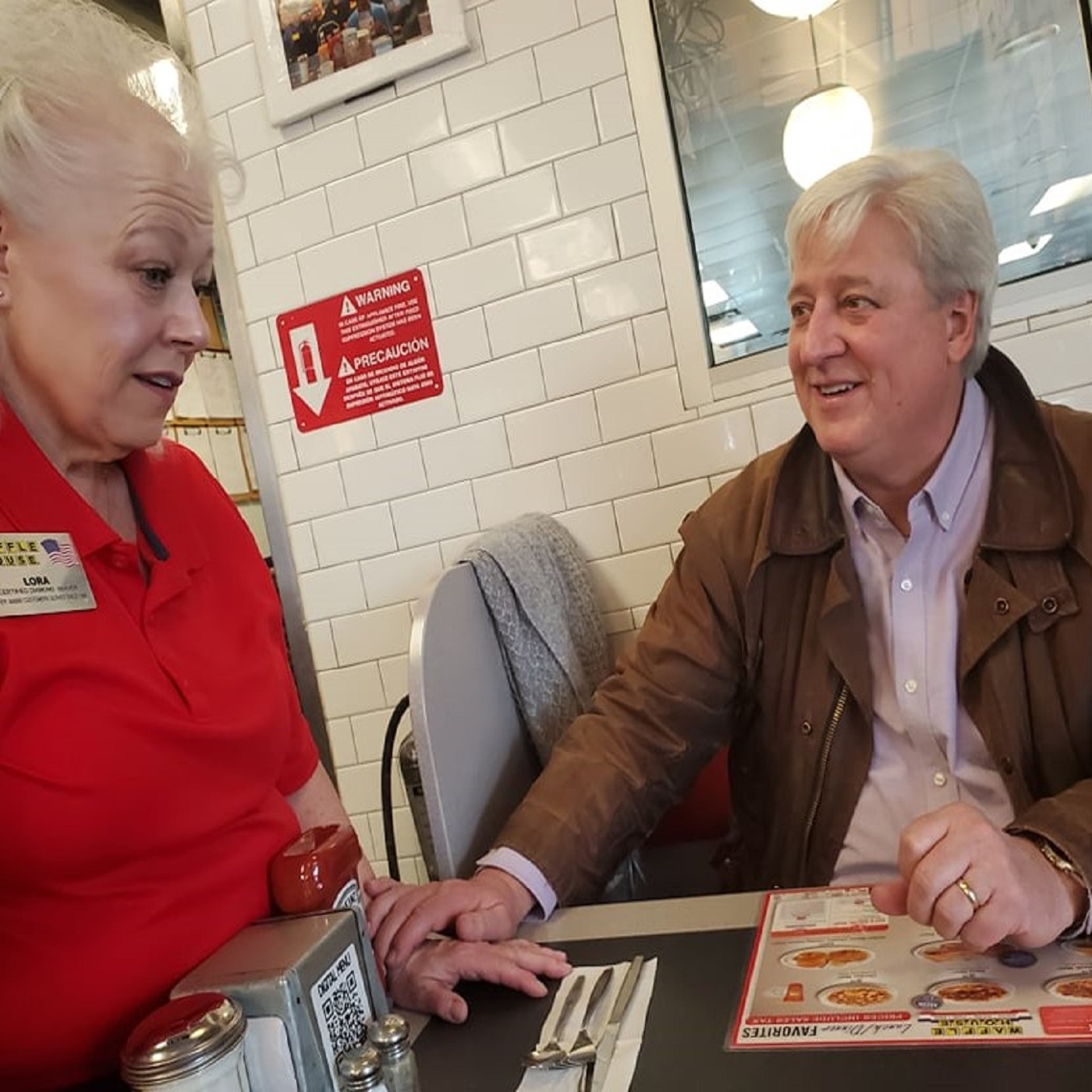

WAFFLES AND WELL-BEING From extended hospital stays surrounded by faceless people in masks to longer nights where loneliness and fear serve as companions, caregivers remain prone to feeling adrift and disconnected. Longing for recognizable landmarks that signal safe harbor, caregivers face the challenge of “re-anchoring” themselves—often in a storm. But it doesn’t have to be complicated. During my wife’s surgeries in Denver, I stepped into a Waffle House near the hospital. I love Waffle House. I grew up going to Waffle House, but we now live in Montana, and there’s no Waffle House in the whole state! In Denver, where I knew few people, everything required learning and adjusting. But stepping into the local Waffle House, familiar sounds, sights, smells, and tastes flooded over me. For a few minutes, I reconnected and felt at home. Grabbing a take-out order, I took it to the hospital to share “the familiar” with Gracie. While we can’t always change the disorienting circumstances we find ourselves in, we can find new ways to connect to things that settle our hearts. Sometimes, it’s as simple as a waffle—with pecans (and chocolate chips for Gracie!) —Trace Adkins * * * * [AV1]


From: “Happy New Year” can often feel perfunctory and even meaningless in the caregiving world. Most of us know that January 1, 2, 3, etc., usually brings the same challenges as the previous week and year(s). Yet, although our responsibilities may not change, we can. While many fall into the trap of ambitious but unrealistic New Year’s Resolutions (I usually give mine up for Lent), caregivers can instead determine to live rather than just survive. Living, however, requires risks. Life is perilous—despite our culture obstinately working to mitigate all risks (thank the lawyers for that). Isolating to avoid disease, injury, rejection, or failure is no way to live. Nor is avoiding death the same as living. From gardening to music, anything that involves life, art, and creativity comes with the risk of failure, as do relationships, business ventures—and caregiving. This year, I intend to push myself to learn, try, accomplish—and even fail—new things. History teaches that risks and heartache remain unavoidable, but joy is a choice. “It ain’t dying I’m talking about, it’s living. I doubt it matters where you die, but it matters where you live.” —Augustus McCrae, from Lonesome Dove (Larry McMurtry)
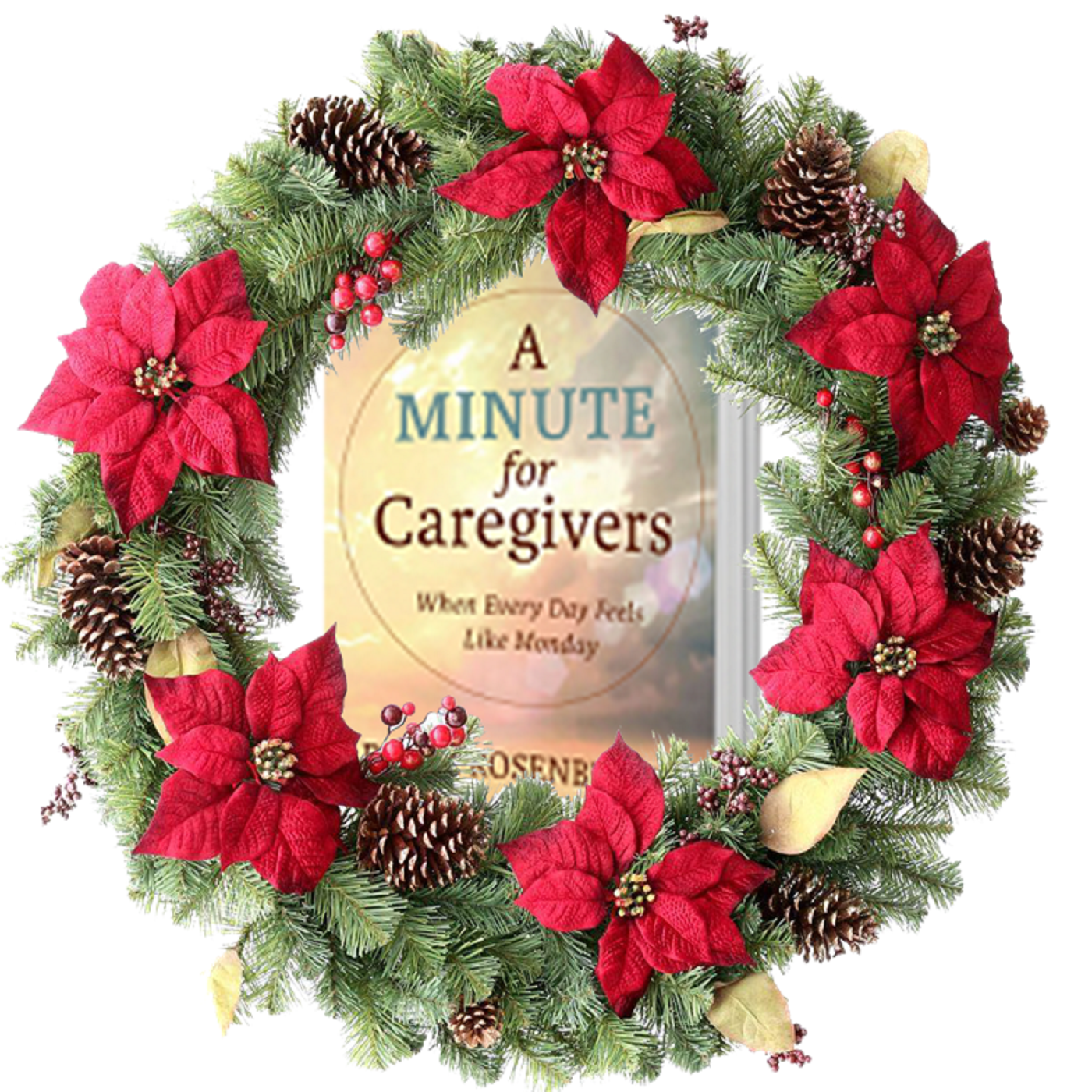

From "- AN INSTRUMENT OF PEACE Walter Kirchhoff stepped into history on Christmas Eve in 1914 when the opera singer/German officer sang “ in both English and German on the battlefields of World War I. On a “beautiful moonlit night, frost on the ground,” Kirchhoff’s voice rose from the trenches—and touched battle-hardened soldiers from Belgium, France, Germany, and England. The moment’s poignancy spurred other soldiers to sing while temporarily laying down arms. Incredulously, the battlefield became festive as soldiers tentatively walked toward one another and extended Christmas greetings. Despite Pope Benedict XV’s earlier plea for a Christmas truce, the fighting continued until soldiers chose to sing rather than shoot. More than likely, Kirchhoff had no idea of the resulting impact of his voice echoing over the scarred landscape; he followed his heart and honored the moment. Sadly, the truce was temporary. Yet, history doesn’t record the first soldier to resume firing; it only remembers the one who first sang of peace, reverence, and the meaning of Christmas. The teachable moment extends today. Families remain filled with conflict over caregiving challenges—many of which may erupt at Christmas gatherings. Yet the precedent stands: in the darkest of times, one voice lifted heavenward can calm a battlefield. If enough follow Kirchhoff’s example, we might not only witness a truce—we may also have peace. —St. Francis of Assisi
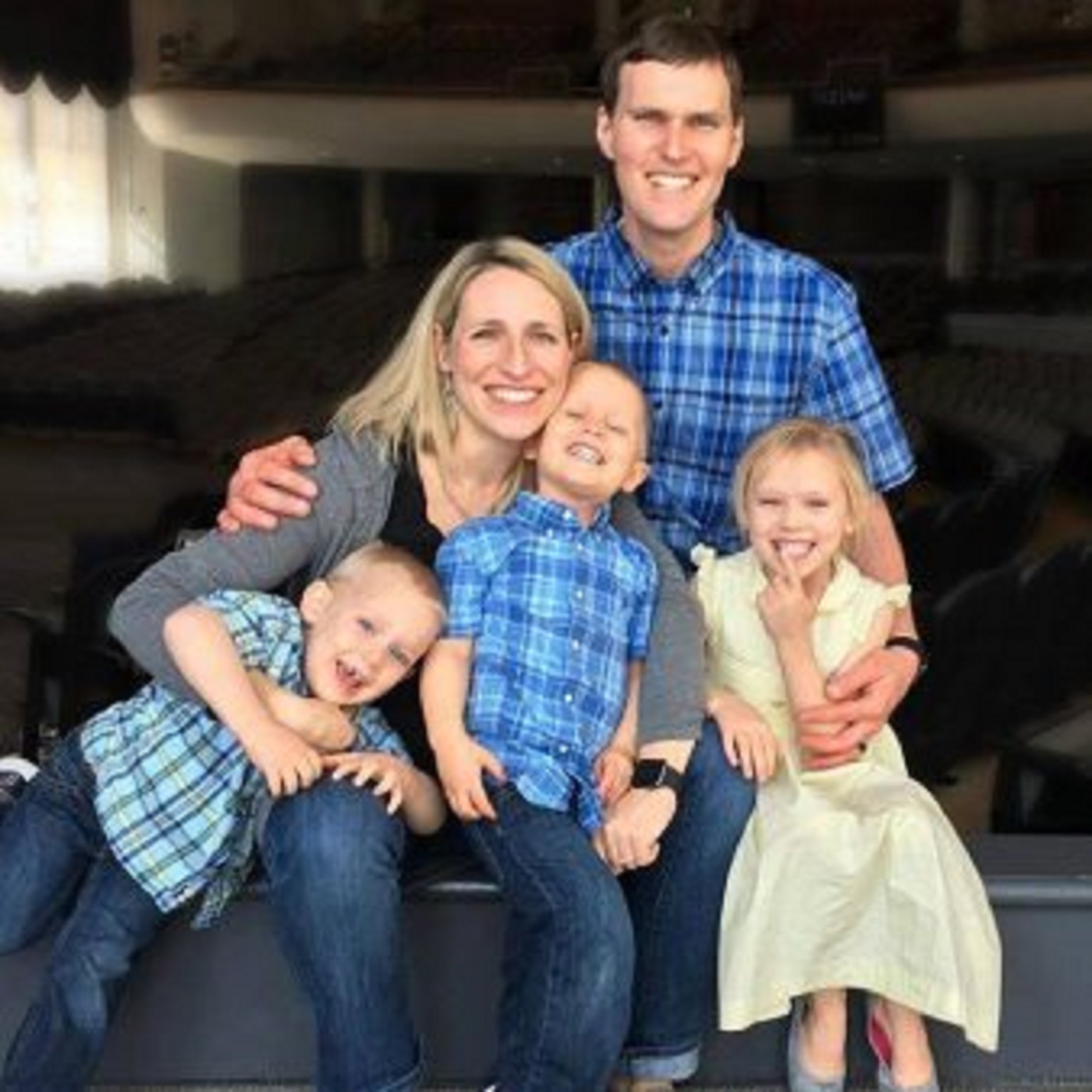

Grammy Award Winner, Dove Award Winner, Artist, Songwriter ... and Caregiver, Laura Story joined the program to share her story, thoughts, and how her life as a caregiver. laurastorymusic.com


A demoralizing point for many family caregivers lies in unmet expectations, hopes, and dreams. We often visualize what could be—but things beyond our control are roadblocks. Ashamedly, I admit to attempting control and trying to force things on more than one occasion—only to frustrate myself, my wife, and (many) others. Letting go of those hopes and expectations, however, can be painful. Over the last few years, I’ve tried a different approach. In my mind, I envision a rather large container I call “The Box of Things That God Will Have to Redeem.” Offloading those items, losses, heartaches, and disappointment to God reduces my angst and the potential for resentment. For me, the box is genuine and reflects my faith that God will indeed redeem each of those things—He’s better at carrying them than me. Saying that “God will have to redeem” does not demand the Almighty to act; it simply recognizes that He alone has the power to do so. Of course, the temptation to retrieve items and stew on them often grips me. Yet, I can affirm each time I place them back in the box, I grow less tempted to dwell on them. After decades of trying to carry the impossible, I find I breathe easier and live more peacefully when trusting God with all the broken pieces. Remembering Jesus was a carpenter further bolsters my faith—knowing He doesn’t even waste the sawdust. —Revelation 21:4 KJV


From - A MINUTE FOR CAREGIVERS - When Every Day Feels Like Monday. How many caregivers put themselves through unnecessary stress trying to re-create Christmas traditions? While a tree, decorations, meals, and gifts remain important, too many allow trappings to eclipse the season’s meaning. Sometimes, the fear that this may be our loved one’s last Christmas pushes us to ensure everything is perfect. But what have we accomplished if we’re exhausted or resentful by December 26? One of the great joys I’ve experienced living in Montana is the opportunity to slow down. When we lived in Nashville, it seemed we raced around at breakneck speeds. The Christmas season there seemed frenetic on a good day. Here in Madison County, I am learning to move at the pace of the weather, the people, and the odd deer, elk, or cow on the road. If, as Andy Williams so spectacularly sang, “It’s the most wonderful time of the year,” should we not savor Christmas rather than suffer through it? The decorations don’t have to look like last year’s. The menu may change, and the gifts may be more personal than opulent. The time we spend with one another and reflecting on the season’s meaning brings more value than our labors or purchasing powers. Nostalgia doesn’t spread Christmas cheer—hearts do. —Rev. Peter Marshall
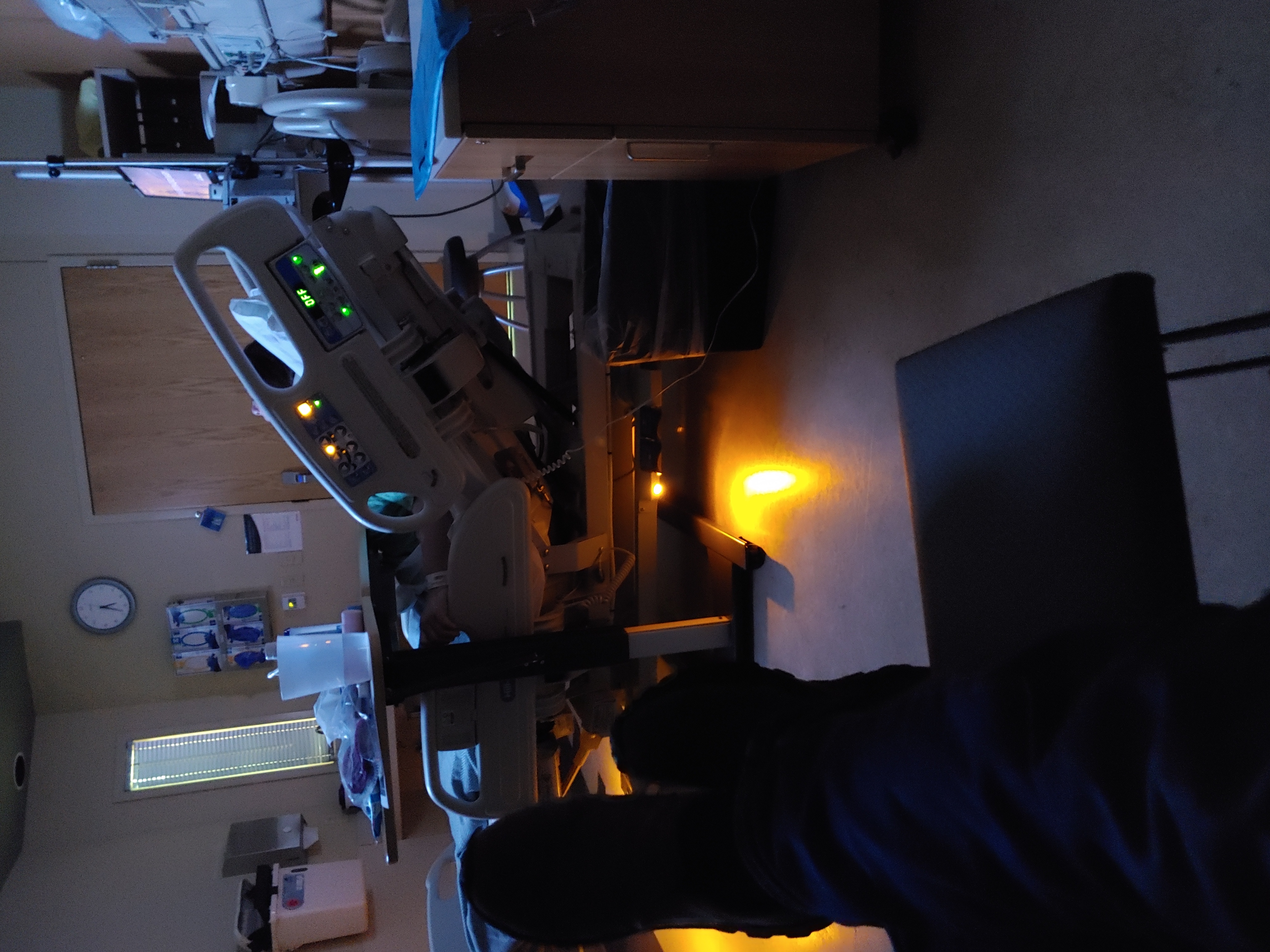

I recently did an interview with Seth and Deb Quad Cities radio (Moody). In this interview I provided the background of how Gracie got to where she is and what sustains us through this.


For as long as I can remember, when my father came home from reserve duty in the military, he brought my brothers and my sister a pack of M&M’s. Stretching past his military service as a chaplain, he and my mother extended the treats when we returned home from school. Each time we arrived with our luggage (sometimes filled with dirty laundry), we’d walk into our rooms to find a bag of M&M’s waiting on the pillow. When they moved away from the house where they raised 5 sons and a daughter, their new home carried the tradition. Bringing our wives, then children, and now even our grandchildren, the familiar brown-bagged treats (sometimes the yellow bags of peanut M&M’s) from my parents awaited every family member. Except this year. Nearly succumbing to congestive heart failure, my mother endured a dramatic and difficult year—as did my father. A US Navy chaplain (Captain) and pastor for nearly sixty years, my father stepped into the role of caregiver for the first time, and I watched the process take a toll on him. It felt odd. While I’ve cared for my wife with severe disabilities for nearly forty years, I’ve never seen my dad in this role. I found myself placing a hand on his shoulder much like he did for me many times following my wife’s now eighty-plus operations. He sat with me in countless ICUs, hospital rooms, and waiting rooms. Now I sat with him. His seasoned faith remains intact and strong, yet he struggled to wrap his mind around the relentless assault of continued medical setbacks. With the same gentleness and encouragement he offered to me over decades of caregiving, I returned the favor. I’ve often heard that “…There’s no pain like watching your children hurt.” Watching your parents hurt must run a close second. With a herculean effort by medical staff, along with my mother’s grit, she pulled through. While not where she’d like to be, she’s further than most expected. After a couple of months away from them, we returned to their home for Thanksgiving. They look tired, older, but optimistic. The family pulled together, and the house looks great. The only significant difference I noticed was an oxygen tank in their bedroom. For the first time in my memory, however, no M&M’s waited on the pillows. The absence of those treats indicates a passage and a farewell to parts of who they used to be. Their home stands in a heavily wooded area of upstate South Carolina. As we prepare for Thanksgiving, the trees surrounding their home continue shedding an entire color palate of leaves. The loveliness of autumn is a sad one that brushes hearts the same way the wind grazes branches. So it is when watching those who loomed large in our lives diminish in vigor but not in beauty. As many will attest, shedding smaller things—the wisps of everyday things taken for granted—often brings a tear. Deep feelings often rise to the surface faster during holidays. For many Americans, Thanksgiving marks the beginning of a difficult season of slow goodbyes, bittersweet celebrations, and the ache of absence for some. Yet, not all is sorrow. Slowing our lifestyles to the pace of our hearts, we can cling to each other a bit tighter. After dinner, we can pause a little longer at the table—or sit quietly for an extra couple of minutes with those we love. If a chair is empty, we can fill that seat with cherished memories. Families nationwide feel this kind of heartache that is deeply connected to caregiving. Helping those caregivers is challenging, yet it remains critical to the caregiver and their loved one. Part of that help is assisting caregivers in grieving without them sinking into despair. Doing so always involves redirecting our gaze to gratitude. The treats I’ve enjoyed for a lifetime no longer await me, but the loving hands that placed them are still here to hold. Placing that candy on their pillows instead, I now possess a greater understanding of the joy they both shared—for a lifetime. I discovered gratitude can be found this Thanksgiving in something as simple as a bag of M&Ms.
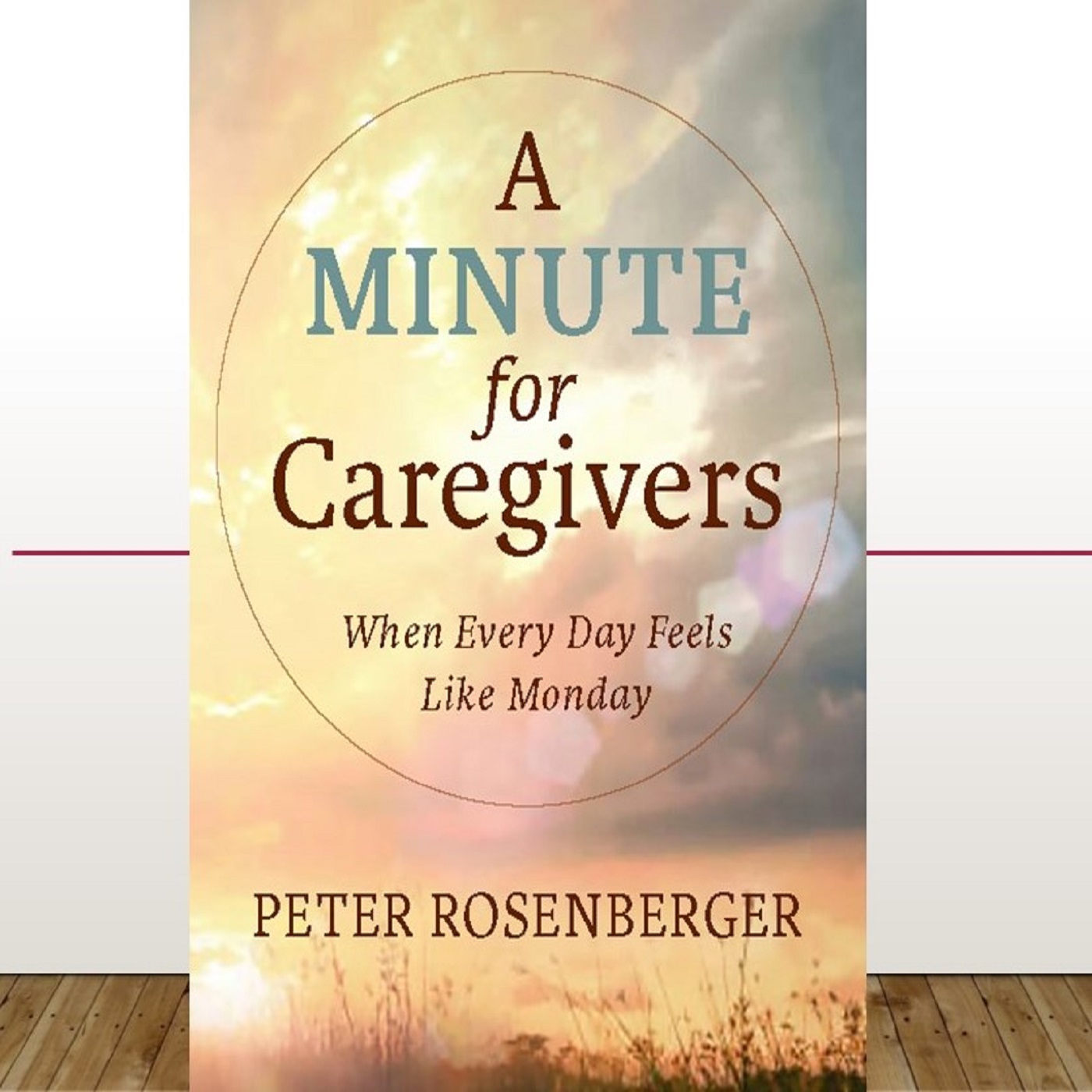

From "A Minute for Caregivers - When Every Day Feels Like Monday." The Comfort of Gratitude Resentment can lead even the best of hearts into poor judgment, wrath, and even self-destruction. For caregivers, the fight against bitterness remains perpetual. Maybe family and friends left us out to dry, a bad medical call, an employer fired us in a vulnerable moment, or a drunk driver who caused incalculable pain—there seems no end to the opportunities to hold a grudge. Some caregivers even resent themselves, while others shake their fists at God. Regardless of the resentment’s object, the one who carries the hatred pays the highest price. The only antidote to the poison of resentment is gratitude—the “…virtue from which all others spring.” Gratitude always leads to peace of mind, but bitterness only swindles serenity by deceitfully making us feel powerful in our wounded hearts. Thanksgiving is not simply a meal—nor even a holiday; it’s a way of life that refuses resentment’s tyrannical hold on our souls. While incurred wounds are real and painful, they can only fester when we nurse them with the septic cloth of resentment. Thankfulness washes those wounds clean and allows them to heal. —Hannah Whitall Smith
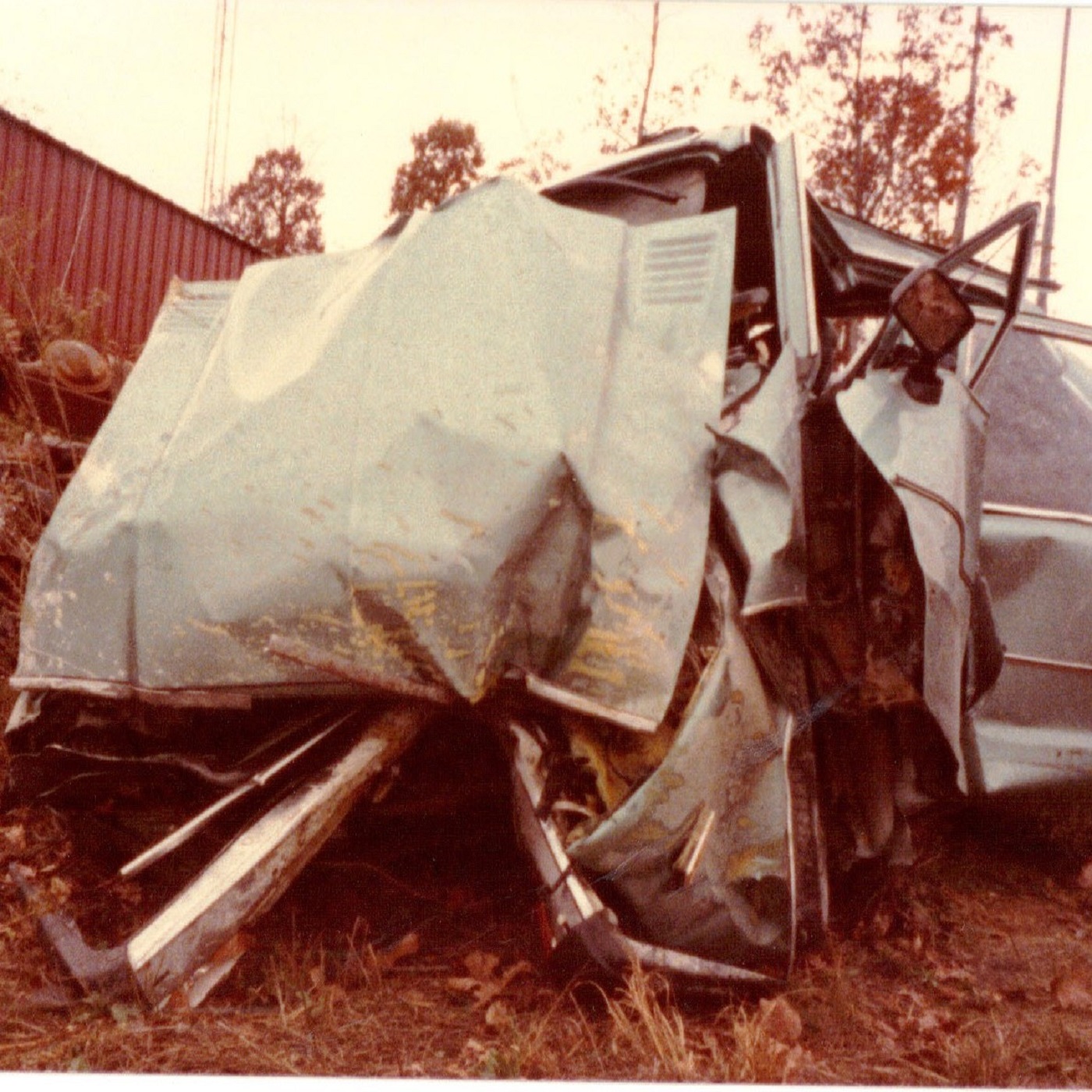

Forty years is a long time. It's even longer when every day is filled with pain, disability, and struggles. Today, November 18, is the fortieth anniversary of the devastating car accident that changed Gracie's life. img Listen to her recount that day - in her own words. There's a special bonus following Gracie reading the prologue from her book. 's


* * * * Welcome to Hope for the Caregiver here on American Family Radio. * * * * * This is Peter Rosenberger. * * * * * This is the program for you as a family caregiver. * * * * * How you doing? * * * * * How you holding up? * * * * * What's going on with you? * * * * * Those and more are the type of questions that we ask ourselves as family caregivers that I ask you. * * * * * I want you to ask me, how are we doing? * * * * * How are we holding up? * * * * * And you can see more about why I do what I do here, how we do it, who we're doing it for all at HopeForTheCaregiver.com. * * * * * HopeForTheCaregiver.com. * * * * * I want to continue our conversation that we were having last week about the 1-2-30 * * * * * Last week we just spent time on help. * * * * * Today, we're going to finish the phrase which is help me, me, money and endurance. * * * * * We're going to talk about that just to review for those of you who maybe missed it last time. * * * * * Under your health, get an annual flu shot. * * * * * Some people don't. * * * * * Want to take a flu shot? * * * * * Some people medically don't feel they can do that, but I still recommend it. * * * * * That's kind of a guide. * * * * * But the whole point of this is not religion. * * * * * I'm not setting up some type of institution that you got to, this is what we got to do. * * * * * You know, I was driving to Bozeman the other day. * * * * * We had an early snowstorm. * * * * * We got about 80 inches of snow and it was pretty cold too. * * * * * It was about 15 degrees when I was driving over there. * * * * * When you get a lot of steam coming off of the river as you go through, and it gets very foggy to drive through the canyon that I have to go through to get there. * * * * * Between the steam and the fog and the snow-covered road, sometimes it's hard to know where the road is. * * * * * And that's why I'm grateful they have those reflectors so close. * * * * * And sometimes they're double tiered because of the amount of snow we get. * * * * * And it just helps me know where the road is. * * * * * And so that's all this is, just a reminder of where's the road? * * * * * Where's the path? * * * * * We don't have to put ourselves under any kind of bondage to follow this. * * * * * We just come up with tools that may help us. * * * * * So, for your health, one annual flu shot, two well visits a year, and 30 minutes daily of physical activity. * * * * * okay, and if you can't get a flu shot or you don't want to get a flu shot, please don't get all bent out of shape about that this is just a suggestion, and two well visits a year well, why wait a whole year to find out at your annual physical that you have high blood pressure or your sugar is real high or you know yada yada yada 30 minutes a day of something physical do something physical * * * * * And for your emotions, how about a counseling visit? * * * * * You know, once a month, just once a month to spend time with a counselor, a trained mental health professional, two support groups over the course of a month. * * * * * They're not going to fix the problem. * * * * * That's not what they're there for. * * * * * They're there to better equip you to deal with the challenge you deal with. * * * * * And most of the challenges we deal with, we will find are internal. * * * * * It's how we respond to the things outside us that we don't like, which creates a lot of stress for us. * * * * * So we better learn how to take things in stride and carry things and be flexible and be at peace with the ambiguity and all those kinds of things. * * * * * Well, those are things that you can get from being around others, struggling with the same stuff, getting some help from a trained professional, and then spend 30 days a year in church. * * * * * Okay. * * * * * We as caregivers can't always go every Sunday, but we can aim for it. * * * * * Why? * * * * * Well, it's important that we have community around us, that we're hearing the gospel being preached to us and make sure it's a church that is grounded in biblical authority in the scriptures, not, you know, some type of, um, * * * * * motivational speaker with a religious flair. * * * * * Let's try to avoid that. * * * * * Those are not helpful things. * * * * * Okay. * * * * * But let's go to a place where they better equip you with the studies of the scriptures to have a deeper walk with the Lord. * * * * * Okay. * * * * * And in knowledge, we should all be theologians showing up at church, the study of God, * * * * * Not religion, which is the study of man's approach to God. * * * * * Let's go with theology. * * * * * Let's study. * * * * * Let's learn. * * * * * Let's pursue God. * * * * * We can know God. * * * * * He's given us his word to be able to do so. * * * * * And let's do that in a community of believers for several reasons. * * * * * One of them, it's going to strengthen us for the journey. * * * * * But the other thing is, more importantly, scripture commands us to do it. * * * * * Forsake not the assembly. * * * * * Scripture states so. * Those are things that one to thirty for your emotions So, you know counseling visit once a month again, don't put yourself under bondage to adhere to that Just consider that as a goal and it may be just for a season that you do this to support groups a month and you could do them virtually if you need to and * * * * * and 30 days in church per year for your emotions and then for your lifestyle, something for yourself every week. * * * * * Do something, one thing. * * * * * for you. * * * * * Have a vacation from being a caregiver. * * * * * Again, we may not be able to do that at one time, but that's a day and a half a month. * * * * * And you may have to split that out by hours. * * * * * So if you've got a day and a half, a month, so that's 30 hours a month that you could take one hour a day to take a break from being a caregiver, roughly. * * * * * I mean, you see how you do the math. * * * * * Don't again, don't put this as some kind of unrealistic burden on yourself. * * * * * Just make this a goal. * * * * * You know what? * * * * * I'm going to take, I'm going to take a little bit of time off from this. * * * * * You can, anybody can find 30 minutes somewhere. * * * * * Okay. * * * * * And then as part of that lifestyle, listen to 30 minutes a day of something funny. * * * * * Get laughter back in your life. * * * * * I know your circumstances are dire. * * * * * So are ours, but we laugh and it's important to laugh. * * * * * Ecclesiastes says there's a time to weep and a time to laugh. * * * * * We have plenty of time to weep as caregivers. * * * * * Do we laugh? * * * * * Okay, it's really important that we do this. * * * * * And then the P of help is for our profession. * * * * * And I recommend this. * * * * * I do it for myself. * * * * * One training class per year to learn a new skill. * * * * * And I don't care what it is. * * * * * You may learn Excel spreadsheets on your computer. * * * * * You may learn how to garden. * * * * * You may learn how to cook better. * * * * * There's all kinds of cooking classes. * * * * * You know, Graham Care, who's been on this program, The Galloping Gourmet, just a wonderful man. * * * * * He's got a whole series of things on Amazon and other places that you can go and learn how to cook better. * * * * * from him on heart healthy stuff you can do and it's really good stuff. * * * * * I mean he's been out there a long time. * * * * * But, you know, you can go out there and get that if you want to learn how to cook better, which I recommend doing because, you know, who doesn't want to be a better cook? * * * * * Cooking can be a chore for us as caregivers. * * * * * I understand that. * * * * * But still, I like to prepare and I like to get in there and try new things. * * * * * I'm fairly adventurous in the kitchen and I make a great venison taco. * * * * * I've tried, I've had elk * * * * * Stroganoff and elk spaghetti sauce and I try all kinds of different things. * * * * * You never know. * * * * * I mean, do you know how to cook game? * * * * * Do you know how to cook this? * * * * * Do you know how to make a good roast? * * * * * Do you know how to, you know, do things that will bring a lot of flavor to your life, but learn something. * * * * * I took a class last year at Hillsdale College on C.S. * * * * * Lewis and Christianity. * * * * * 30-part class, free. * * * * * It's just lectures and I listen to it and you take a little test. * * * * * I passed it, got a certificate. * * * * * So, you know, there's always something you can learn. * * * * * As an employee, in your profession, you can always improve yourself with some kind of training. * * * * * And then, two performance meetings a year with your supervisor. * * * * * Why wait for an annual one to find out there may be a problem? * * * * * Have two, just to make sure that there's good communication. * * * * * And then, as part of that, by the way, give a good day's work. * * * * * Be forthright with your boss. * * * * * Let them know what's going on with you. * * * * * You don't have to give all the details, but let them know what's going on. * * * * * And then ask for and give flexibility to the best of your abilities. * * * * * And then 30 minutes a day away from your desk or phone during office hours. * * * * * 1-2-30. * * * * * One training class, two performance meetings, 30 minutes daily. * * * * * So those are just some tips that I came up with. * * * * * I don't normally give tips, but it's something I do for me. * * * * * He will be strong to deliver me safe and the joy of the Lord * * * * * Welcome back to Home for the Caregiver. * * * * * This is Peter Rosenberger. * * * * * This is the program for you as a family caregiver. * * * * * That is my wife, Gracie, with Russ Taff, off of her CD, Resilient. * * * * * By the way, if you want to get a copy of that CD, the easiest way to do it is go out to, I should call this number, 615-297-7000. * * * * * 5388 at Logos Bookstore. * * * * * 615-297-5388. * * * * * And Gracie's fussing at me because I haven't loaded that on so that you can download it from iTunes and everything else. * * * * * You can do individual songs, but you know, you can go out there to iTunes and Amazon Prime and all that kind of stuff. * * * * * You can do it, but I haven't done it. * * * * * I've had a few other things going on in my life so I'm working on it and I'm trying to build a page. * * * * * You can see some of it right now. * * * * * See what you think at PeterRosenberger.com with all my product pages and so forth. * * * * * So feel free to take a look and see what you think. * * * * * We're trying to update a lot of things. * * * * * and it's Peter Rosenberger, R-O-S-E-N-B-E-R-G-E-R.com. * * * * * It's a new page I'm doing. * * * * * I'm going to link to it from the Hope for the Caregiver page, but I'm just trying some things and we're working fast and furious on that. * * * * * So anyway, all right, let's get back to the Help Me 1230 program that I came up with. * * * * * And on this, * * * * * We address the me, M, me, help me. * * * * * The M is for money. * * * * * So how do you deal with your money as a caregiver? * * * * * What do you do with one, two, thirty? * * * * * Well, here's something I came up with. * * * * * All right. * * * * * Again, you don't have to do this. * * * * * It's something that helps me. * * * * * I come up with one charity to financially support. * * * * * One charity has nothing to do with being a caregiver, has nothing to do with all the other things I deal with. * * * * * It's me putting something towards helping someone else financially. * * * * * You don't have to spend a lot. * * * * * You can do $5 a year, but do something that focuses on supporting something other than your own world. * * * * * Get outside yourself a little bit. * * * * * Find a worthwhile cause. * * * * * Could be anything. * * * * * I mean, there's so many different worthwhile causes. * * * * * I would recommend, by the way, if you listen to this program regularly, support American Family Radio. * * * * * Okay. * * * * * Just go online at AFR.net and support them. * * * * * You're getting something out of this. * * * * * Are you giving something back to them? * * * * * Okay, you're, you're, you're benefiting from this and they are working hard. * * * * * I've been in, I've got to know these folks pretty well over the years that I've been on the air with them. * * * * * And these people work pretty hard to, to stay focused on bringing a clear message of the gospel through geopolitical events, through teachings, through all kinds of things that they do. * * * * * So support them. * * * * * If everybody in this audience * * * * * that benefits from what I'm saying and doing here went out to AFR and just pledged, I don't know, ten bucks a month. * * * * * You know, that would be a huge thing for them. * * * * * This is a big audience. * * * * * Ten bucks. * * * * * Whatever it is that the Lord lays on your heart, but do something that is supporting something else. * * * * * Besides Yourself. * * * * * Push yourself to support, to give. * * * * * Okay? * * * * * So that's something we can do. * * * * * It gets our mind off of our misery and lets us know that we are doing something that has greater value. * * * * * One charity that you could support and get involved with it. * * * * * Okay? * * * * * Two meetings per year with some type of financial advisor or an accountant. * * * * * Just to go over everything to make sure it's solid. * * * * * Are your taxes being paid? * * * * * I was talking to a caregiver the other day who's way behind on filing income tax. * * * * * I don't know that he has to pay that much, but you have to file them. * * * * * Death in taxes. * * * * * Okay. * * * * * I mean, that's just render under Caesar and Caesar's very demanding. * * * * * So let's stay on top of that. * * * * * Let's don't get behind. * * * * * You don't need to add that kind of pressure. * * * * * For those of you who are professionally in that world, financial reps and accountants and so forth, if you are looking to help someone that's a caregiver, call your pastor and say, look, I'd love to sit down with any caregiver here. * * * * * I'm not trying to germ up business. * * * * * I'm going to do this just to be able to help. * * * * * and sit down with them and make sure that they're okay financially, that they have some kind of plan. * * * * * Don't sell them anything. * * * * * You're not trying to make a living off of these people. * * * * * You're just wanting to help. * * * * * It would be a huge help, and I bet you your pastor would know somebody in the church who could benefit from that. * * * * * just to sit down, have a conversation, make sure everything's up to date. * * * * * You know, it may be a situation where you'll have to charge them something down the road, but I'm not trying to create leads for you for your business. * * * * * I'm just saying, this is how you help a caregiver. * * * * * If a caregiver looks tired, I bet you their wallets look tired too. * * * * * Their purses look tired too. * * * * * Okay. * * * * * So sit down as a caregiver with somebody who is a trained financial expert in their field. * * * * * Interview with * * * * * is a must. * * * * * Okay? * * * * * It's really important that we be smart financially. * * * * * And if we don't know how to do something, there are plenty of people that do. * * * * * So seek out good financial counsel. * * * * * Make sure that all of your filings are done on time. * * * * * Make sure that you're properly deducting stuff. * * * * * Did you know you could deduct all kinds of things that are caregiver related? * * * * * Mileage. * * * * * back and forth to the pharmacy or back and forth to doctor's offices and things such as that. * * * * * Ask about that sort of thing. * * * * * Maybe it's possible for you. * * * * * Okay. * * * * * Just get some, get some good eyes, trained eyeballs on you, just like we're doing with doctors, just like we're doing with counselors. * * * * * Now we're dealing with our money and it's money's tight. * * * * * I know that. * * * * * But as I've often said, it's not a lack of resources. * * * * * It's often a lack of resourcefulness. * * * * * And it's very important. * * * * * Today is a great day to start making healthy financial decisions. * * * * * Don't beat yourself up over what you did last week. * * * * * Man, I have made so many financial blunders, but I don't have to do it again today. * * * * * I can learn from that and I can seek out counsel from people who are better trained and wiser and smarter at this sort of thing. * * * * * and they can give me good counsel. * * * * * And if they won't spend the time to help you, shake the dust off your feet and go to another one. * * * * * You know, there's people out there that will help if you ask for help. * * * * * They'll help you. * * * * * But be very specific and intentional of what you're dealing with. * * * * * What is the pressing issue? * * * * * So the best way to start sometimes is, okay, are all of your filings up to date? * * * * * All of your tax returns, all that kind of stuff. * * * * * If it's up to date, * * * * * We're in good shape. * * * * * Let's go to the next issue. * * * * * You know, the next issue, the next issue, just chip away at this. * * * * * You didn't get here overnight. * * * * * You're not going to get out of it overnight. * * * * * And you say, well, Peter, I don't have any money. * * * * * So it doesn't really matter. * * * * * Everybody's got something. * * * * * If you're completely destitute, that's a different conversation. * * * * * But I don't think that you are at this point. * * * * * So let's start making good financially healthy decisions right now. * * * * * Okay. * * * * * Right now. * * * * * And then the 30. * * * * * So we've got one charity that you can support. * * * * * Think about somebody else's challenges other than your own. * * * * * Two meetings per year with a financial advisor or an accountant of some type that can go through your stuff and, and help you develop a solid plan. * * * * * Remember I had, um, the gown here. * * * * * A while back, his name is Hans Scheele. * * * * * Finishing Well is his podcast. * * * * * You can go out, he has an amazing library of podcasts you can go out and listen to for free. * * * * * And Hans said something great on this program. * * * * * He said, don't avoid calling me just because you don't think I can afford it. * * * * * Let me make that decision. * * * * * Okay, so I thought that's an open invitation. * * * * * You can reach out to him at his website and let him talk to you about it and see what may be available. * * * * * You don't have to start with, you know, $100,000. * * * * * You can start with $1. * * * * * Okay, that's the goal is for you to start. * * * * * So don't be embarrassed, don't be ashamed, don't be afraid. * * * * * Just step out in boldness and say, I am going to start making better financial decisions today and I'm going to seek the help of somebody who can help me do it. * * * * * Okay. * * * * * Commit to that. * * * * * and then 30. * * * * * Now what is 30? * * * * * What are we going to do? * * * * * 1, 2, and 30. * * * * * Remember everything is 1, 2, and 30. * * * * * So what are we going to do with 30? * * * * * Well, here's what I suggest. * * * * * Try squirreling away $30 from every paycheck into some type of savings or investment. * * * * * Try squirreling it away. * * * * * Okay? * * * * * You may not be able to right now. * * * * * Some of us, you know, I know what it's like to live paycheck to paycheck. * * * * * I know what it's like to live * * * * * You know, under paycheck to paycheck that you're like, okay, well, I'm only going to go into debt this much this month. * * * * * You know, I've been there. * * * * * I mean, Gracie's cost is fortune. * * * * * I mean, it's the numbers are staggering for what Gracie's journey has cost. * * * * * And then you have lost labor cost that they don't even figure that in of what I could be making. * * * * * with, you know, without these types of encumbrances that we have on us. * * * * * But here we are. * * * * * So shoot for 30. * * * * * You may be able to do, you know, 300. * * * * * You may be able to do 3,000. * * * * * Some of you may be able to do 30,000 a month. * * * * * I don't know, but the point is you're doing something that you're socking it away. * * * * * You're putting into some type of savings or investment that's going to help you. * * * * * And that's where trained financial advisors can help you. * * * * * It may be that you're starting off really small, but the discipline of doing that is going to be a game changer. * * * * * And speaking of discipline, tithe, that's also going to force you into a discipline financially. * * * * * And this is what scripture commands of us. * * * * * So tithe and watch God work. * * * * * I mean, God says in the scripture, test me in this, watch him work, but say, Lord, I'm going to be responsible for my finances. * * * * * And I am going to tithe to where I'm being spiritually fed in my church. * * * * * And I'm going to support my church. * * * * * And if you're making a hundred dollars a week, * * * * * You tithe $10. * * * * * Yes, that's going to be tough. * * * * * There are people that can give all kinds of great big gifts to church. * * * * * That's not what Jesus is looking for here. * * * * * Do you remember the story of the widow and two mites? * * * * * Because she's giving all she has to give. * * * * * Okay? * * * * * God is not limited, nor does He require you to support Him. * * * * * He's not limited to your support. * * * * * He's not requiring your support in the sense that He's got to have it. * * * * * It's a discipline for us to be able to say in faith, we're going to rely on God to supply all our needs according to his riches and glory through Christ Jesus. * * * * * Okay. * * * * * It's going to push us. * * * * * It's going to be tough and we're going to have to make hard decisions, but that's just part of being a caregiver. * * * * * We make hard decisions all the time, but now we're going to make healthy decisions. * * * * * They may be hard, but they're healthy. * * * * * This is Peter Rosenberger. * * * * * We'll be right back. * * * * * We're going to wrap up with our Help Me 1230 program that I developed for myself of just things to remember for me. * * * * * And the last one is E, help me, M-E, endurance, E for endurance. * * * * * How do we, how do we endure? * * * * * How do we stay focused on this? * * * * * One daily outside contact * * * * * with positive and loving friends. * * * * * Find a friend somewhere that you can call. * * * * * Phone a friend. * * * * * Just call them up and listen to someone who is speaking life into your life, who's a positive person, who loves you, cares for you. * * * * * Reach out to them. * * * * * I don't care if it's just to talk about the weather. * * * * * I don't care if it's to tell the joke of the day. * * * * * Just find somebody outside of your home and your caregiving world that you can call. * * * * * Okay, that's one. * * * * * The two, everything is 1-2-30, two hours per week of just me time. * * * * * Just you. * * * * * Two hours. * * * * * You can find two hours. * * * * * Don't tell me you can't, because you can. * * * * * I'm going to pull rank on you. * * * * * Not many of you all have been a caregiver for as long as I have, or through what I've been through, and I can find it. * * * * * So if I can find it, you can find it. * * * * * You may have to be creative, may not be able to do it all at once, but find two hours somewhere. * * * * * just for you. * * * * * Where I live here in Montana, I get out on a horse. * * * * * Okay, some of you may not be able to do that, particularly if you live in urban environments, but that's what I do for me. * * * * * In the wintertime, it's a snowmobile, sometimes just for a walk. * * * * * I said one of the other things to find something 30 minutes that you could watch that's funny every day, just something, maybe just combine a couple of these things, but make it for you. * * * * * Spend time practicing. * * * * * When I sit down at the piano and practice, I'm not just trying to learn how to play better, I am communicating from the depths of my soul. * * * * * That's how I do it musically. * * * * * Some of you paint, some of you garden, some of you * * * * * Some of you like to needlepoint. * * * * * Some of you like to, you know, create all kinds of things, whether it's knitting and who knows, whatever. * * * * * I don't care. * * * * * It doesn't matter. * * * * * Just find something that's for you and do that for two hours every week. * * * * * And then take 30 minutes a day and you can find this to be still, to have some kind of devotional time, to be quiet, just to be still. * * * * * If you do not take time for stillness, you will make time for illness, but learn to be still. * * * * * Okay. * * * * * Look through all the scripture. * * * * * How many times you hear the Lord say through scripture, be still, y'all be quiet, simmer down now, be still. * * * * * Okay. * * * * * Learn to be still. * * * * * 30 minutes a day. * * * * * It's a discipline. * * * * * You may not get it the first time you go first 10 times you go, but you can try to work towards that. * * * * * of Learning to Be Still. * * * * * Quieten your thoughts. * * * * * 1-2-30. * * * * * Our Help Me program. * * * * * And that's just something I came up with to give a guideline to myself and to fellow caregivers. * * * * * Please, again, do not feel like you've got to somehow adhere to this. * * * * * as far as with some type of rigidity, but just use it as a way of keeping you back on the main road. * * * * * We can get lost in the weeds so easily. * * * * * So, 1-2-30, and I'm going to leave you with a bonus 1-2-30, okay? * * * * * A bonus 1-2-30. * * * * * You're not having to pay any extra for this, all right? * * * * * There are times when we just * * * * * Money, Endurance, And Caregivers * * * * * If you don't see nail prints, then this ain't yours to fix. * * * * * You are responsible for your own actions and what comes out of your mouth, your thoughts, words, and deeds. * * * * * One day our Savior's plan is going to be clear and all of this will be made right for those who trust in Him. * * * * * And that's where our faith comes in. * * * * * And I cling to that promise. * * * * * God will wipe all the tears from their eyes and there shall be no more death, neither sorrow nor crying. * * * * * Neither shall there be any more pain for the former things are passed away. * * * * * It's a book of revelations. * * * * * We have a Savior. * * * * * That's why I love Keith Green's hymn, There is a Redeemer, Jesus, God's own Son. * * * * * I just love that hymn. * * * * * I love that hymn. * * * * * There is a Redeemer. * * * * * There is a Savior. * * * * * And we're not that Redeemer or Savior. * * * * * Okay, so you have one Savior. * * * * * And then two, remember everything is 1, 2, 30. * * * * * And then two hymns. * * * * * Now for me, these are the two hymns that I remember that come to me in moments when it's just overpowering. * * * * * And most of us feel overwhelmed, overpowered, and outmatched on a good day. * * * * * On a bad day, we're just feeling completely engulfed. * * * * * But in those moments, * * * * * There are great hymns of the faith of people who have been there before us, who live to write about it, who live to sing about it, some who even live to laugh about it. * * * * * But in this particular case, this hymn, and you all know this hymn, It Is Well With My Soul. * * * * * When sorrows like sea billows roll, whatever my lot thou hast taught me to say, it is well with my soul. * * * * * How many of you all know that hymn? * * * * * It is one of the most widely recognized hymns in the entire world. * * * * * I remember in a clinic in Ghana where we're treating amputees and the waiting room was filled with amputees. * * * * * If you've ever been in a room filled with amputees, it is extraordinary. * * * * * And there must have been 30, 45 people there. * * * * * All these different amputees, women, men, children, and we're putting legs on them. * * * * * This is what we do at Standing With Hope, standingwithhope.com if you want to go see more about that. * * * * * And they're all singing, It Is Well With My Soul. * * * * * Now, let me tell you something. * * * * * If you hear a room full of amputees singing with their whole being, It Is Well With My Soul, that is an extraordinary and memorable event. * * * * * And if they can do it, you can too. * * * * * So remember that. * * * * * Two hymns. * * * * * The second one I remember is Great is Thy Faithfulness. * * * * * Great is thy faithfulness, Lord, unto me. * * * * * Morning by morning new mercies I see. * * * * * All I have needed thy hand hath provided. * * * * * Can you hang on to those two hymns? * * * * * It is well and great is thy faithfulness. * * * * * There may be others that you want to do. * * * * * Huge repository of hymns out there that we just all but ignore in our modern day church. * * * * * I would recommend we not ignore them. * * * * * But you go back and look at them. * * * * * But those two are pretty familiar. * * * * * Hang on to those. * * * * * One, Savior. * * * * * Two, hymns. * * * * * And then 30 words. * * * * * 30 words. * * * * * You think you memorized these 30 words? * * * * * I bet you already have. * * * * * Listen to these 30 words that have sustained billions. * * * * * Yea, though I walk through the valley of the shadow of death, I will fear no evil, for thou art with me. * * * * * Thy rod and thy staff, they comfort me. * * * * * You've already memorized those 30 words. * * * * * Many of you are saying it with me. * * * * * Say it again. * * * * * Yea, though I walk through the valley of the shadow of death, I will fear no evil, for thou art with me. * * * * * Thy rod and thy staff, they comfort me. * * * * * One Savior, two hymns, thirty words. * * * * * One is just piling on you. * * * * * You may not be able to remember anything else, but you can remember that you have a Savior. * * * * * You can remember that your loved one has a Savior, and you ain't that Savior. * * * * * You can remember to look down at your hands * * * * * And when you don't see nail prints, you can remember that you're not that savior, that this is way above your ability to fix, and you can trust him. * * * * * You can remember two hymns that sustain you in moments when clarity and your ability to even think is just out the window. * * * * * And you can say, when sorrows like sea billows roll whatever my lot, thou hast taught me to say it as well with my soul. * * * * * If Horatio Spafford can pin that over the watery graves of his children and say that with conviction, and the world sings that, and if a room full of amputees waiting on a prosthetic leg in Ghana, West Africa can say that, so can you and I. And then 30 words. * * * * * 1-230. * * * * * I've given you the best I got of this today, and I'll put this out on the podcast and you can go ahead and reference it again, but I thought it might be helpful to you today to listen to some of these things to guide you back on the main road. * * * * * This is Peter Rosenberger. * * * * * This is Hope for the Caregiver. * * * * * Hopeforthecaregiver.com. * * * * * We'll see you next time.
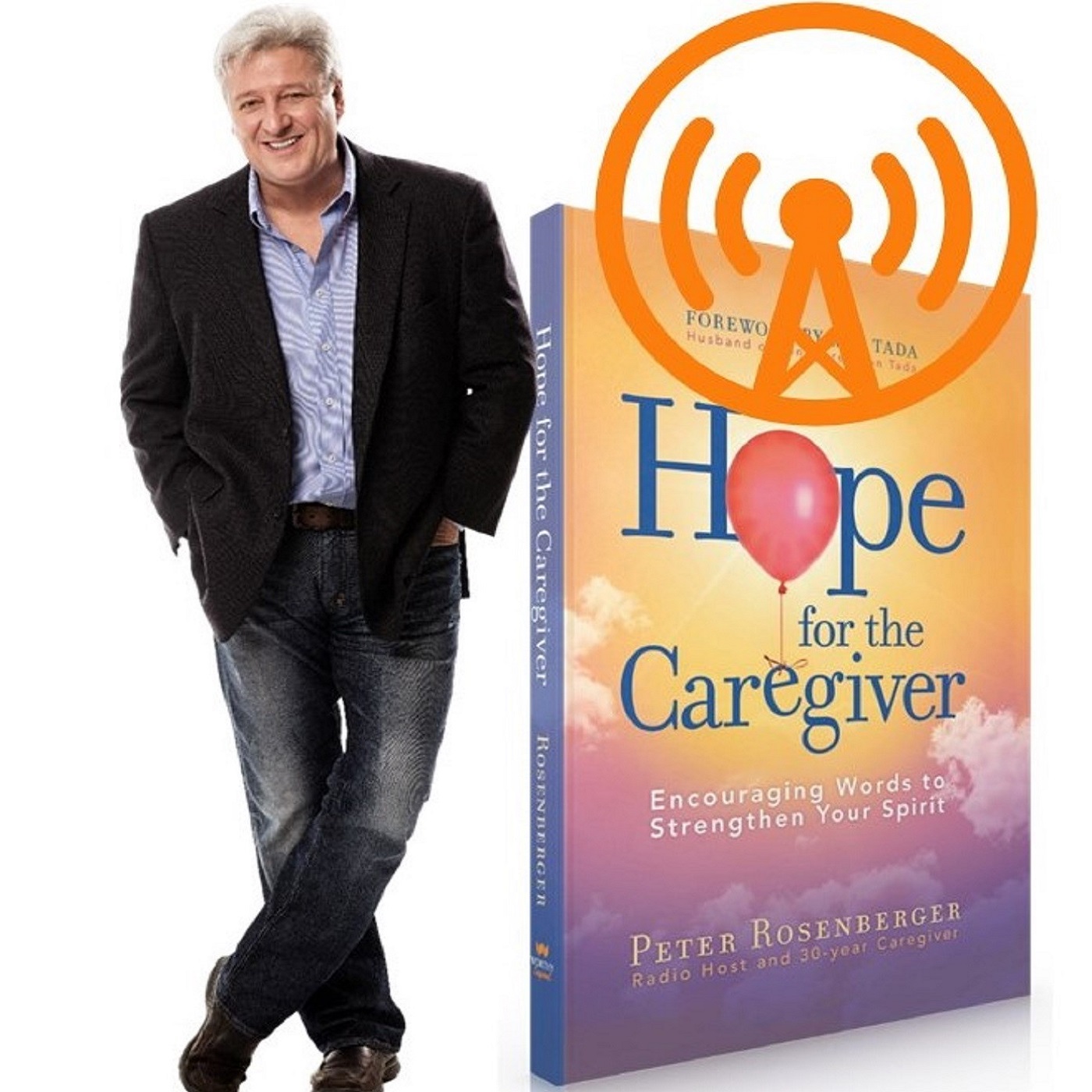

I don't know about you, but I need easy reminders on how I can improve my quality of life as a caregiver - ways to get healthier. So, a while back I came up with an easy reminder for myself - and I shared it on this episode.
